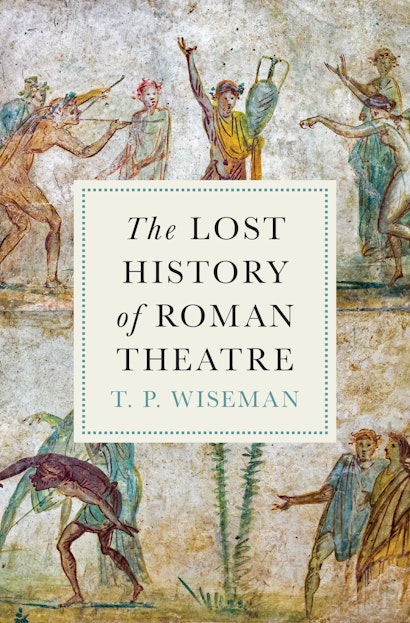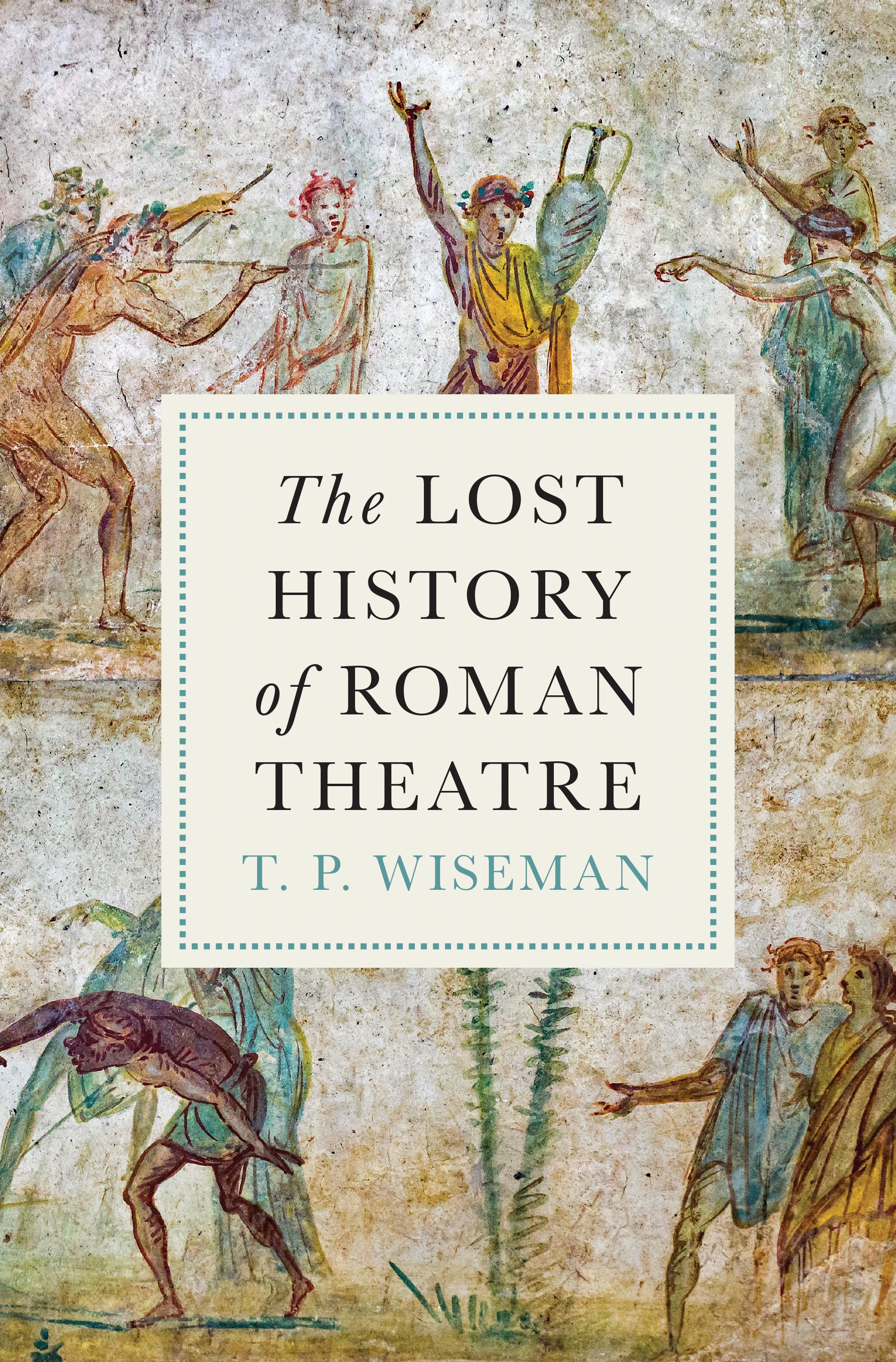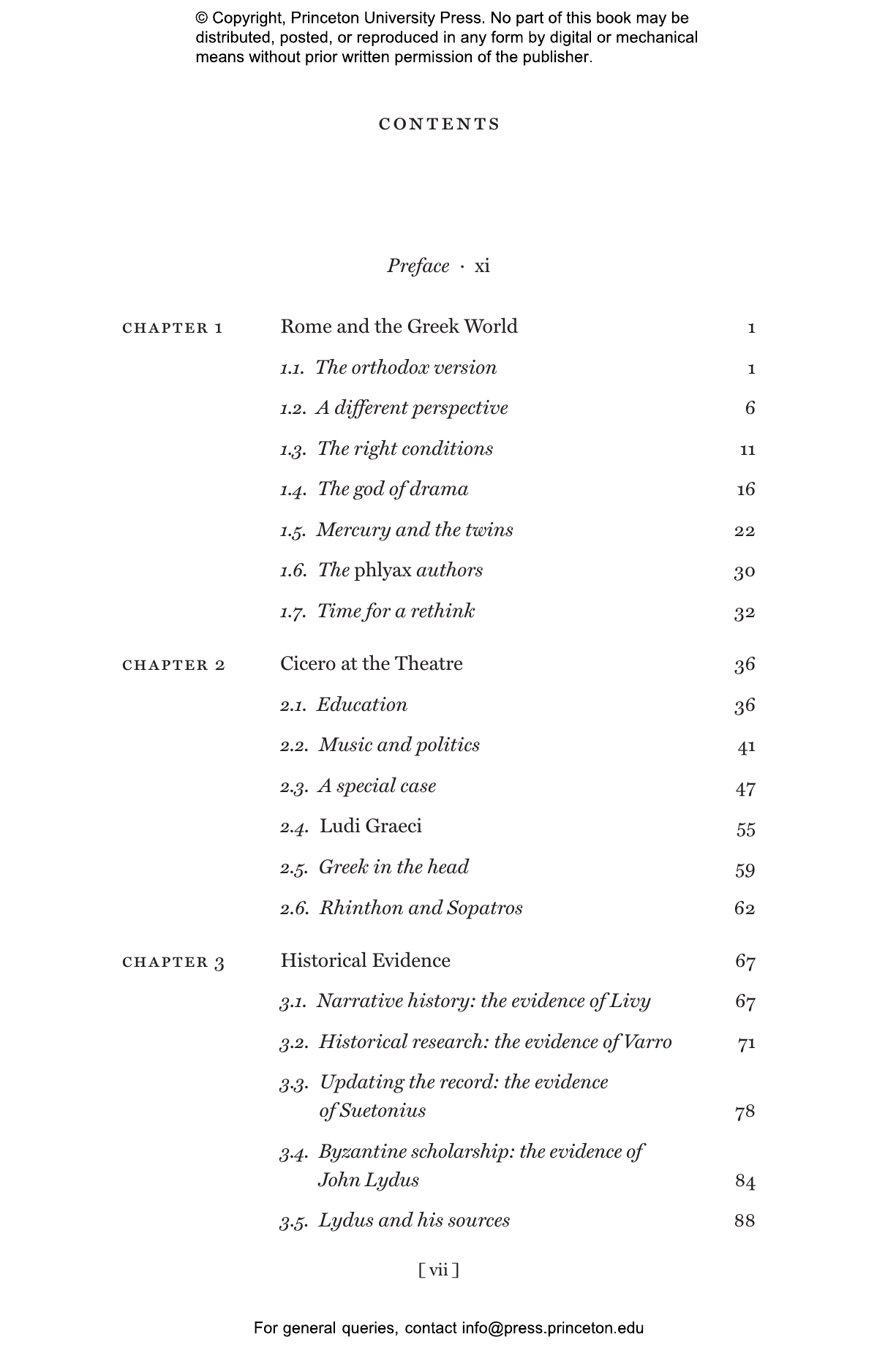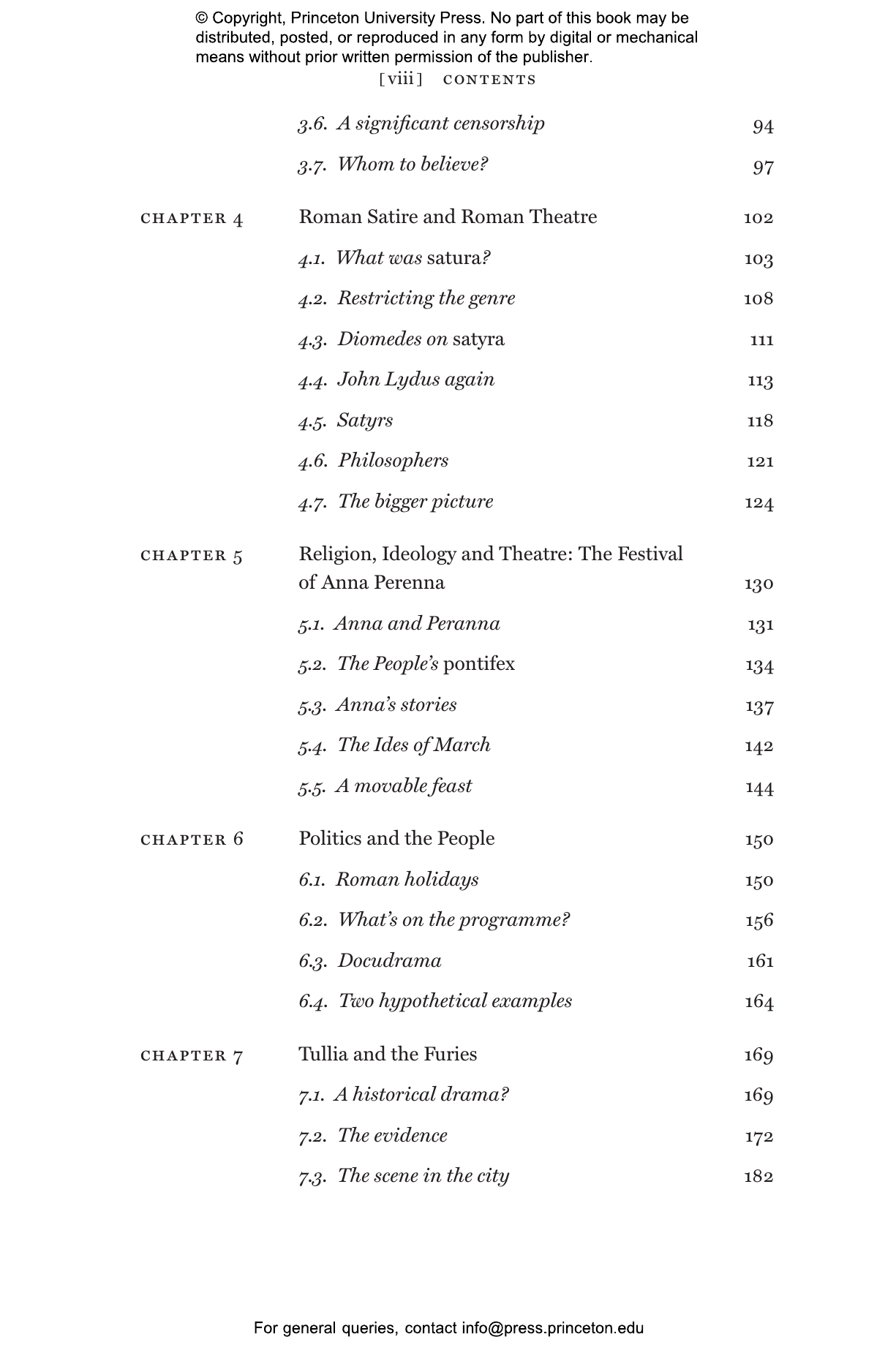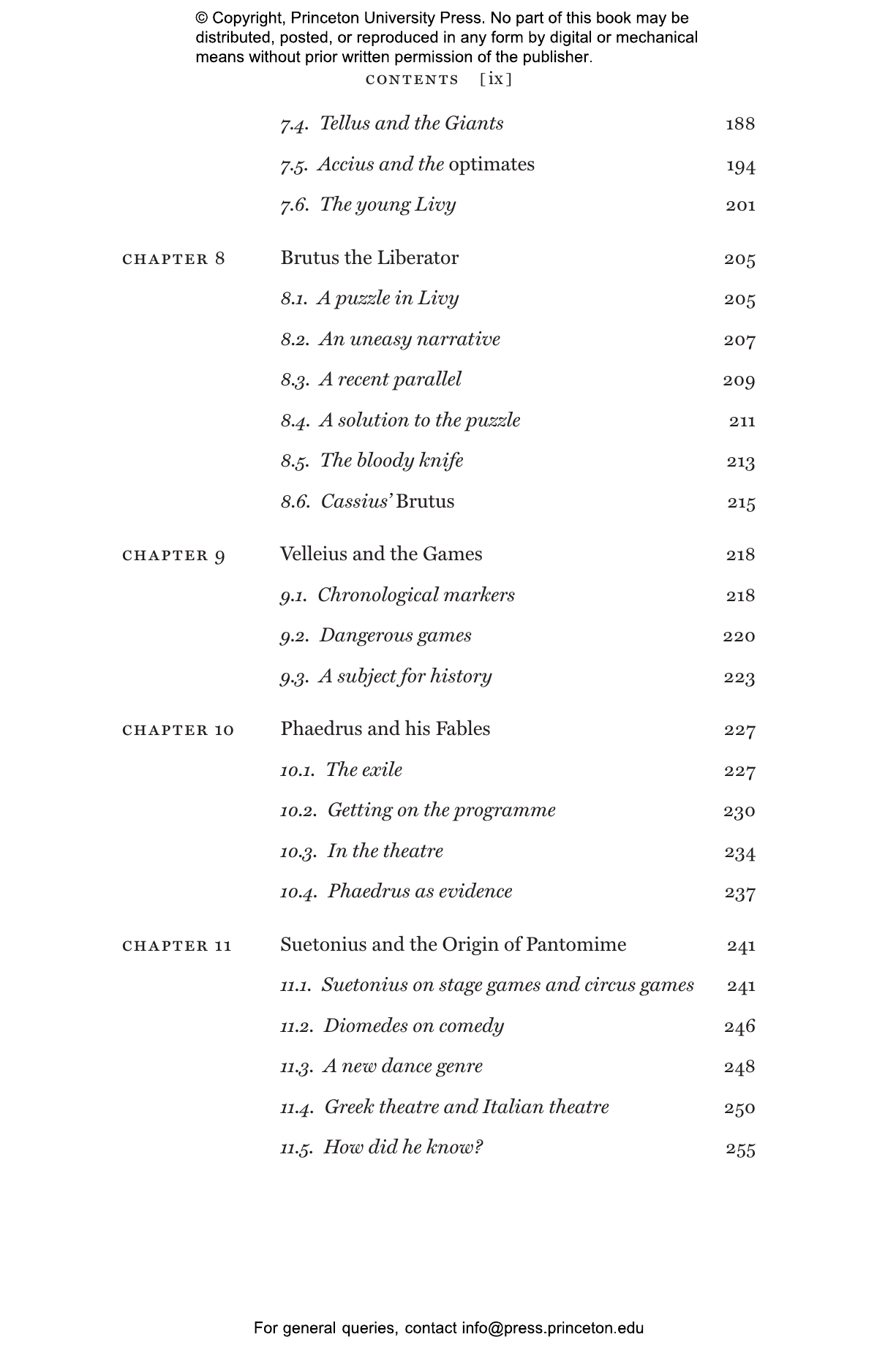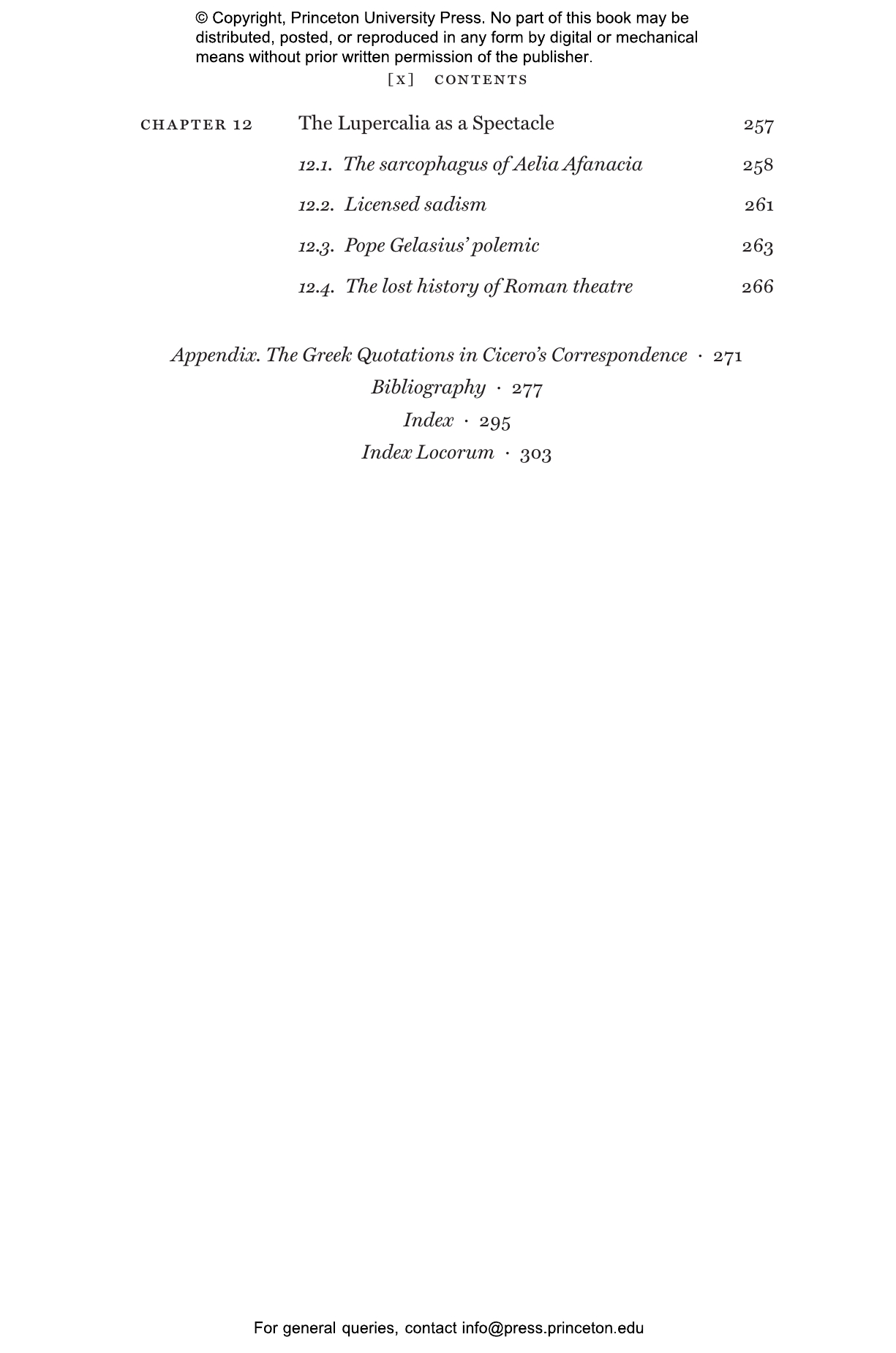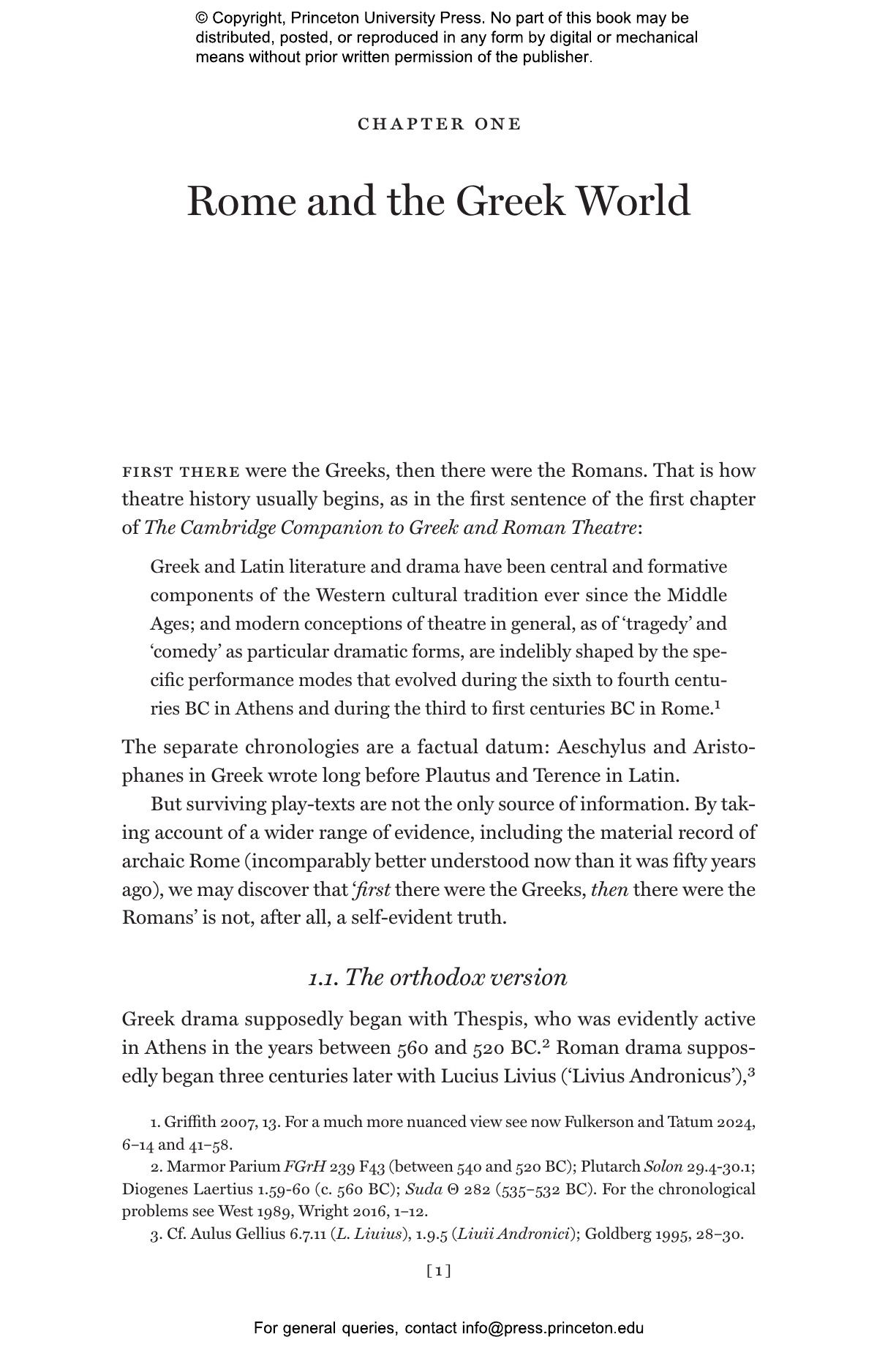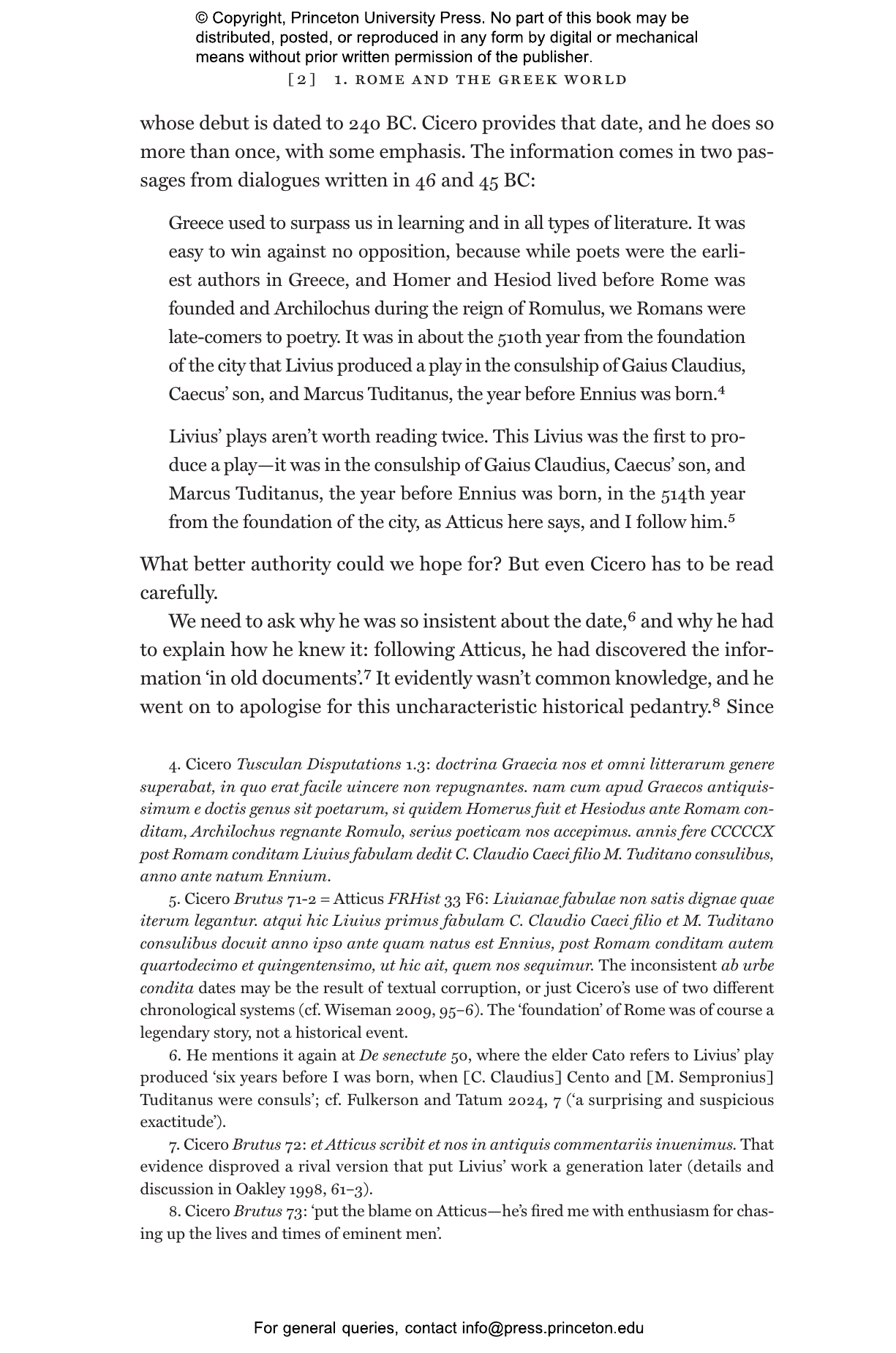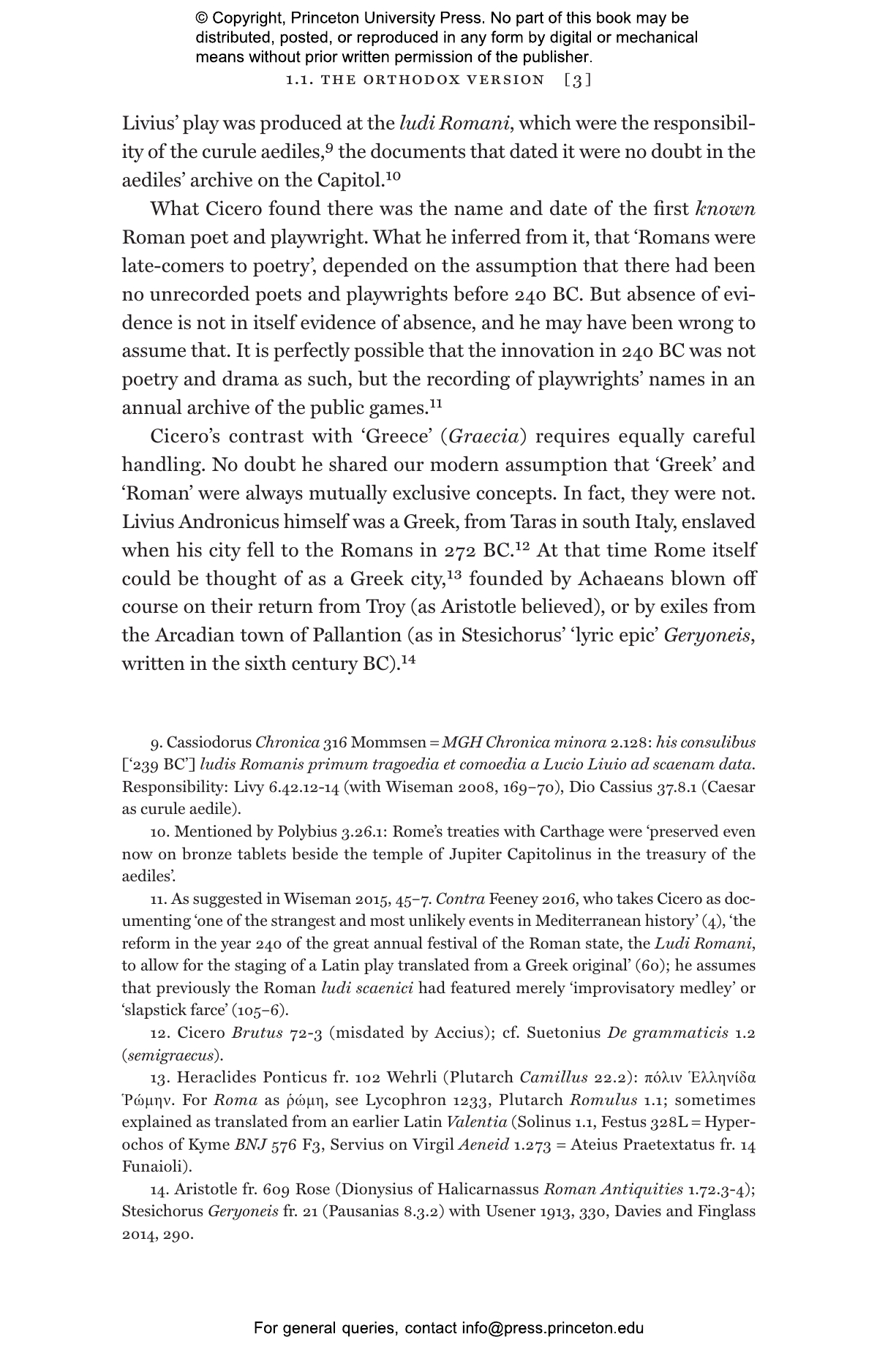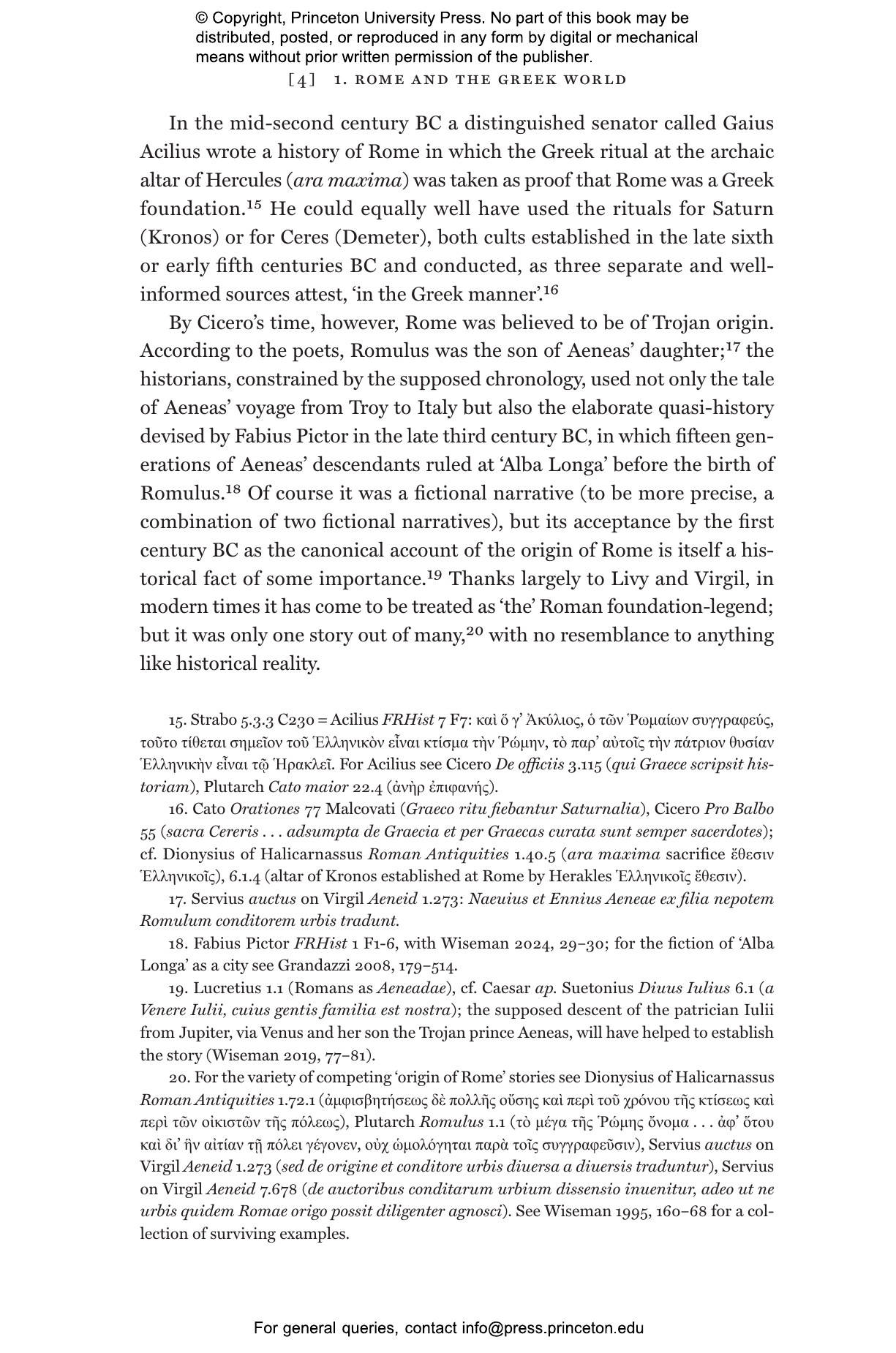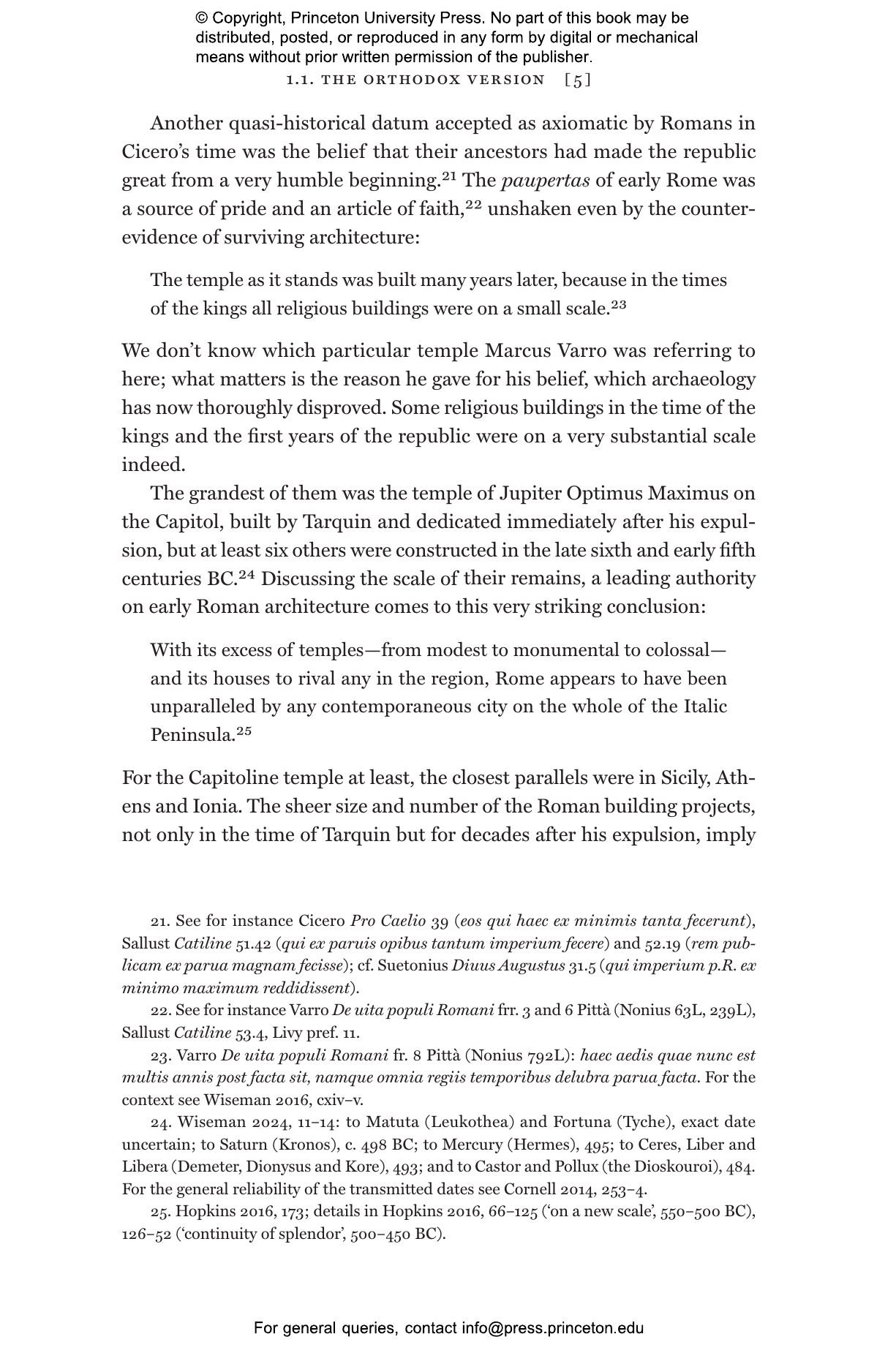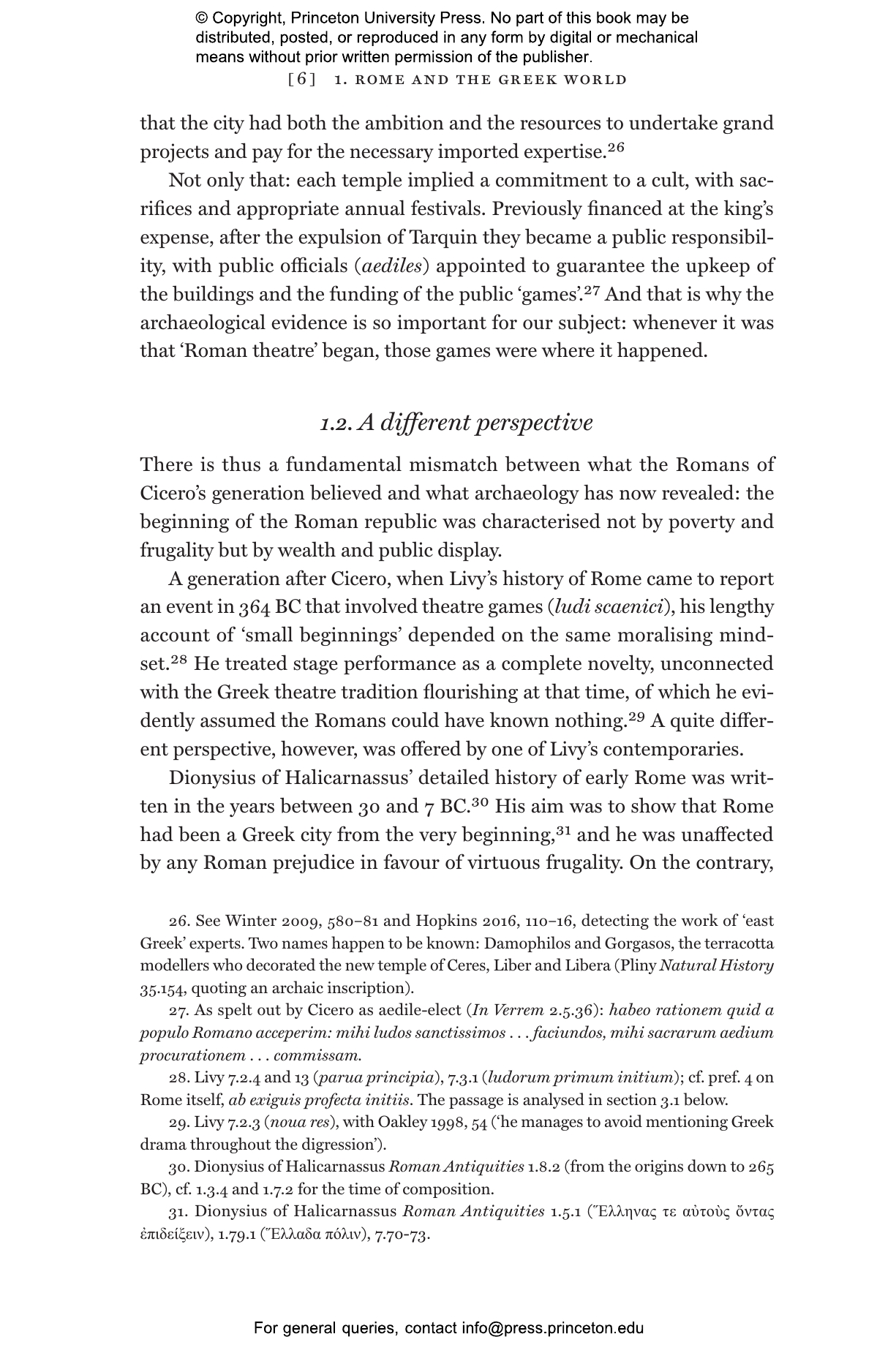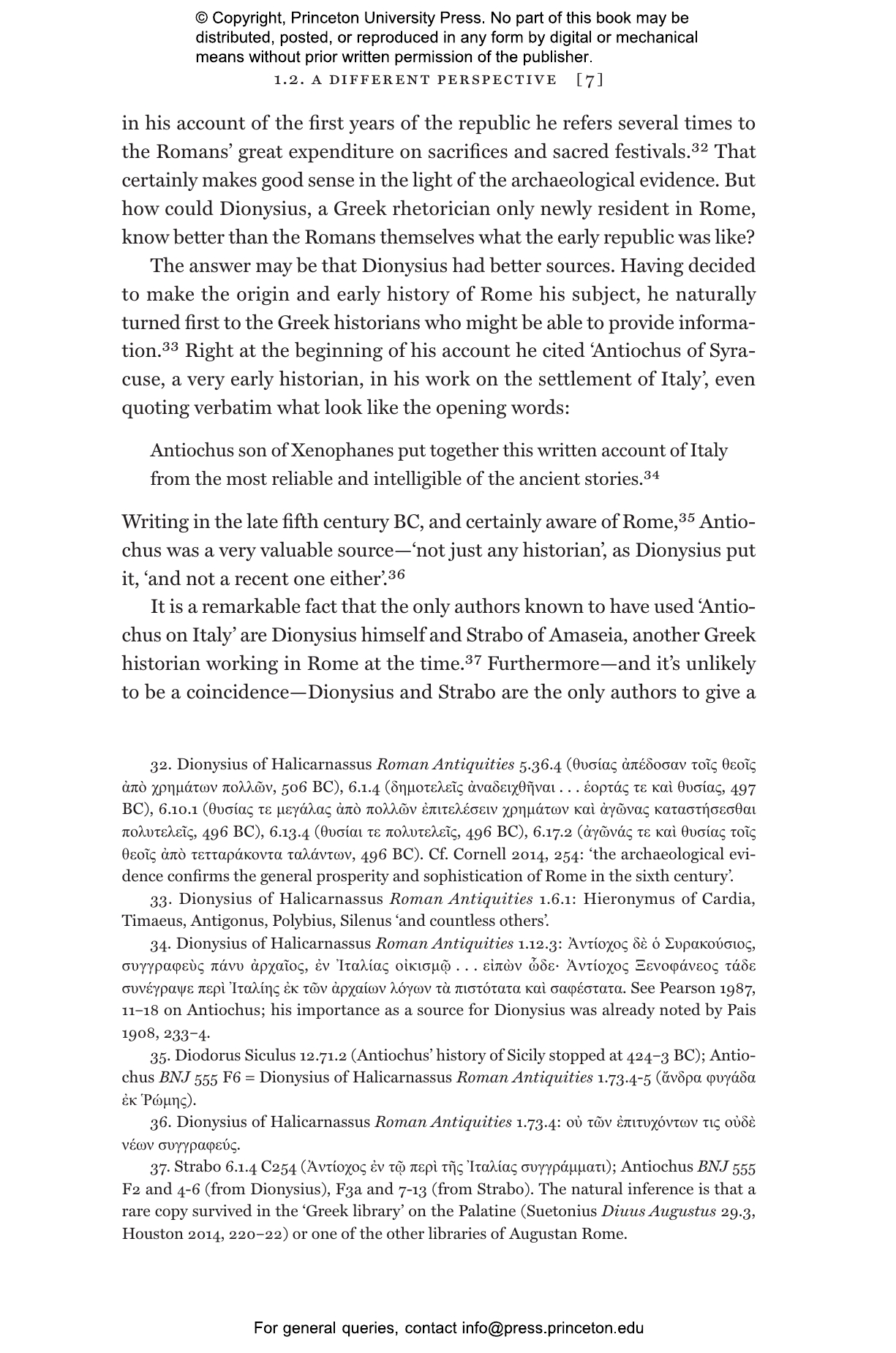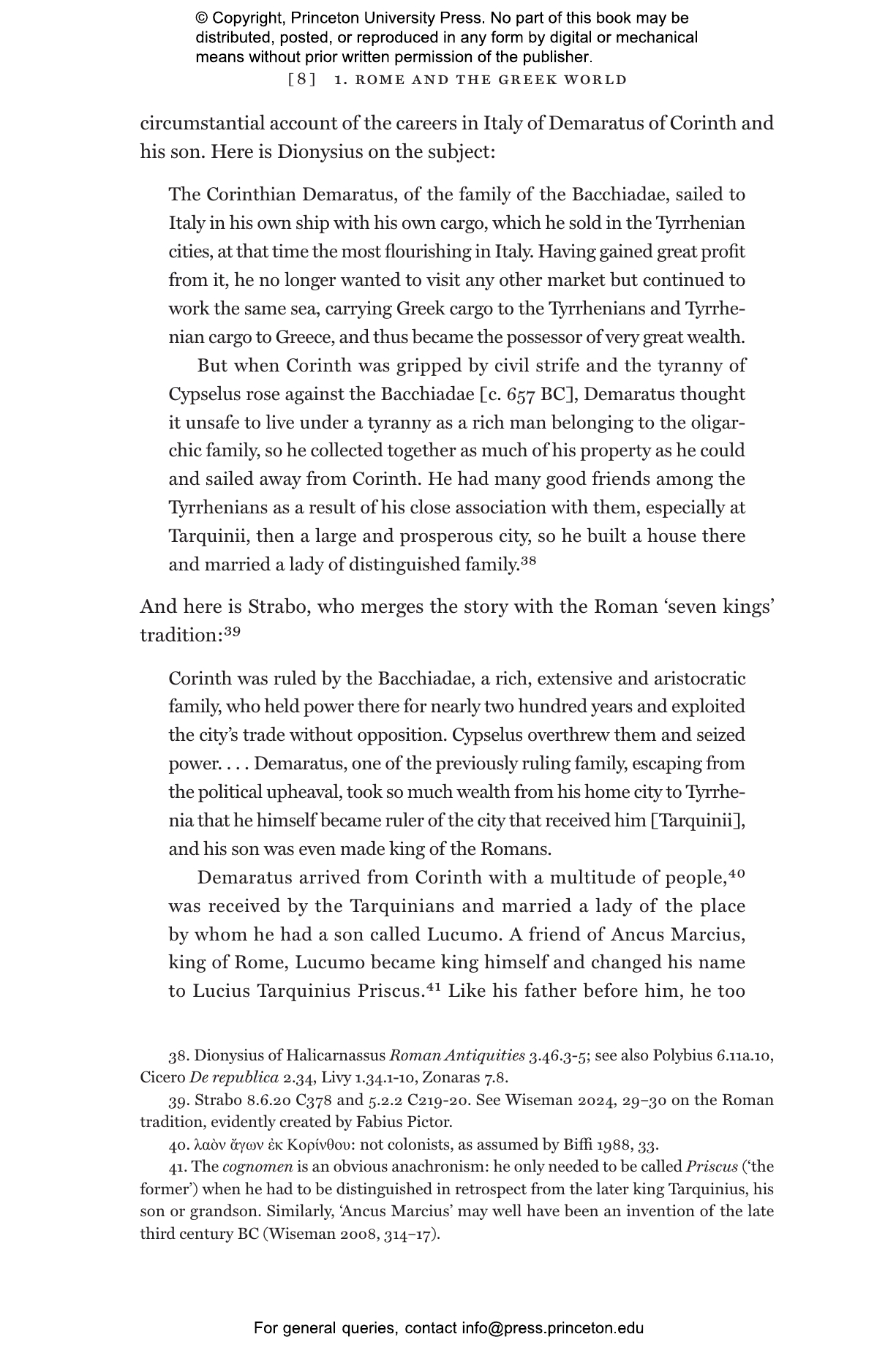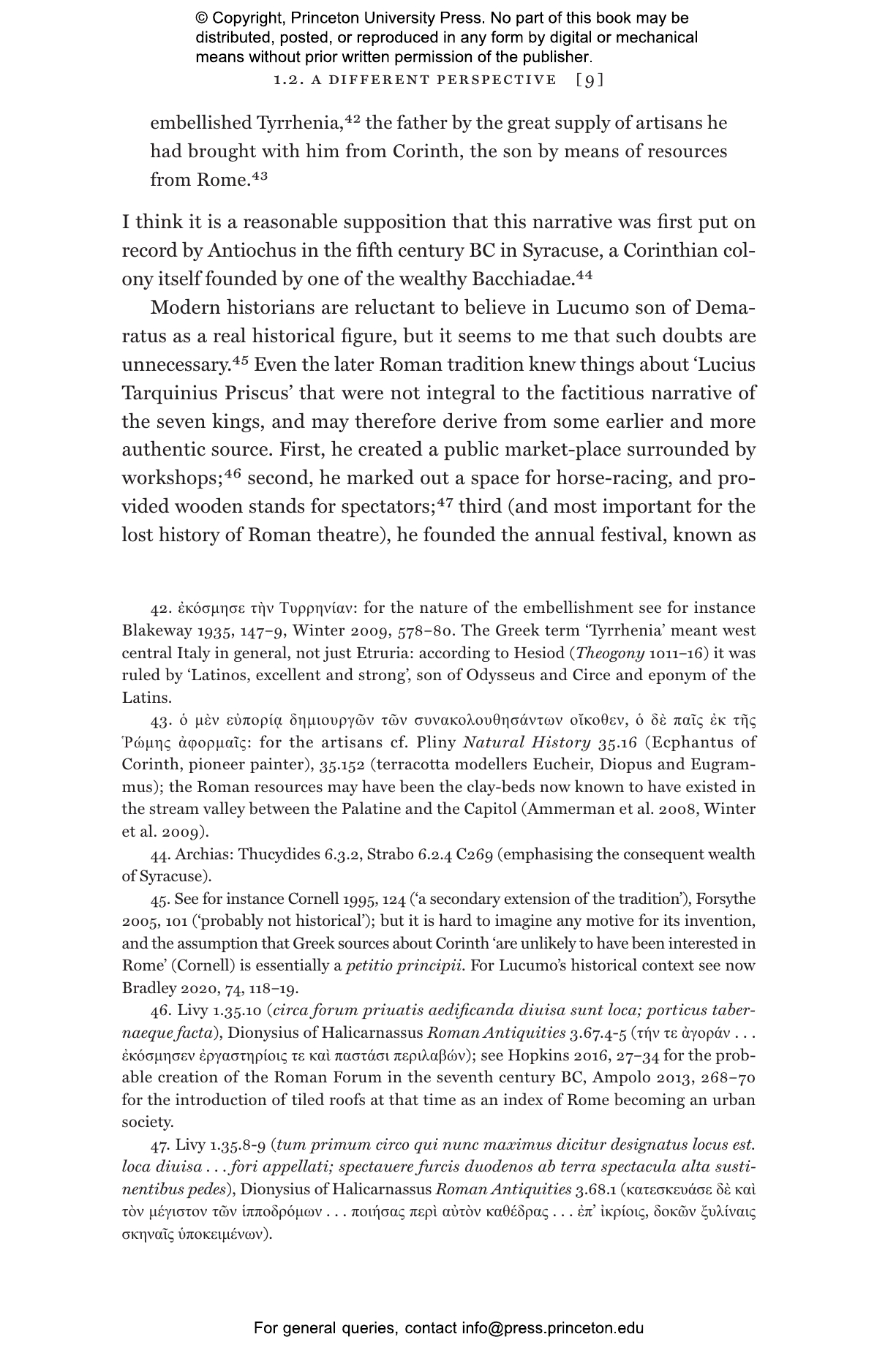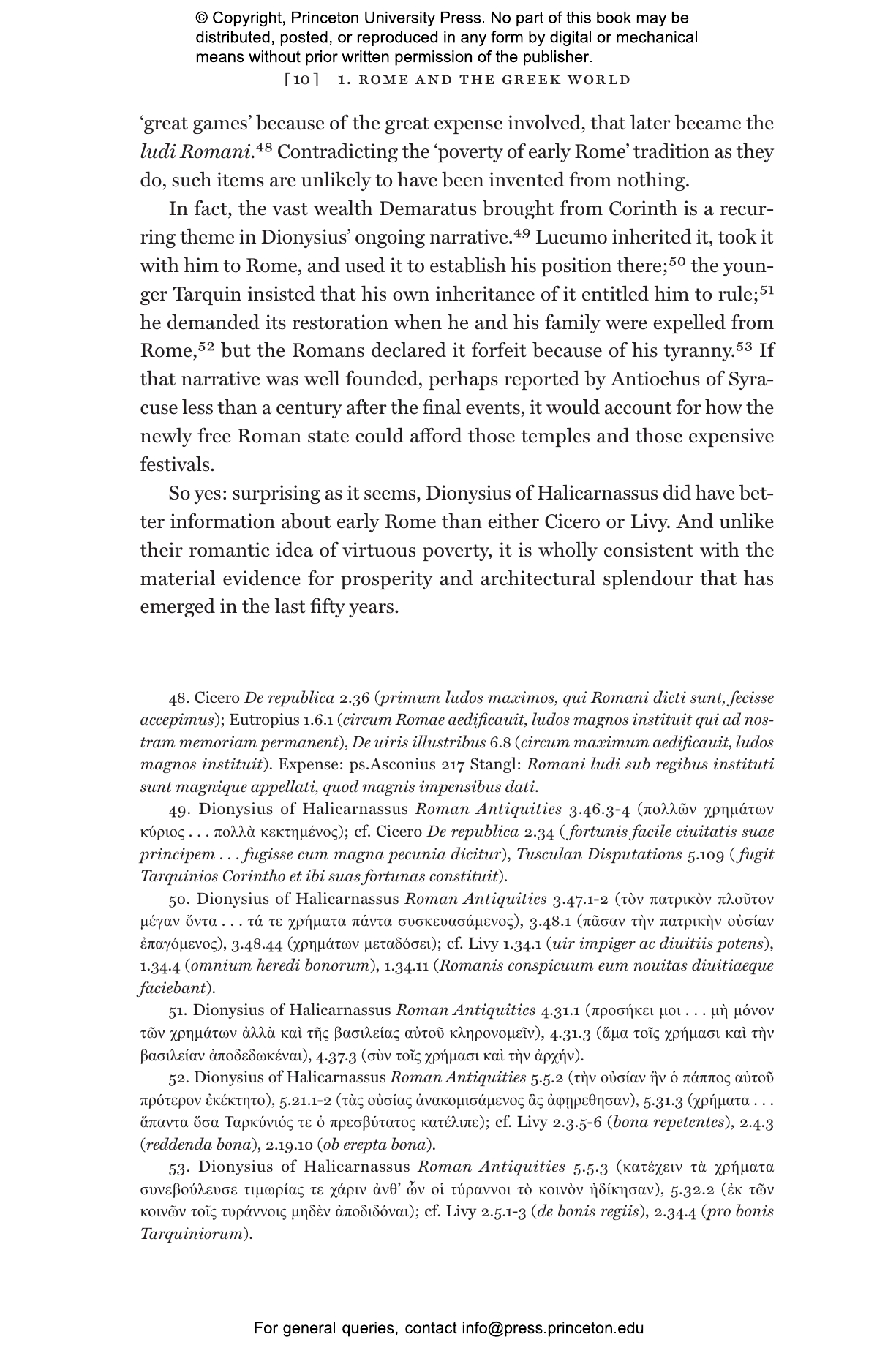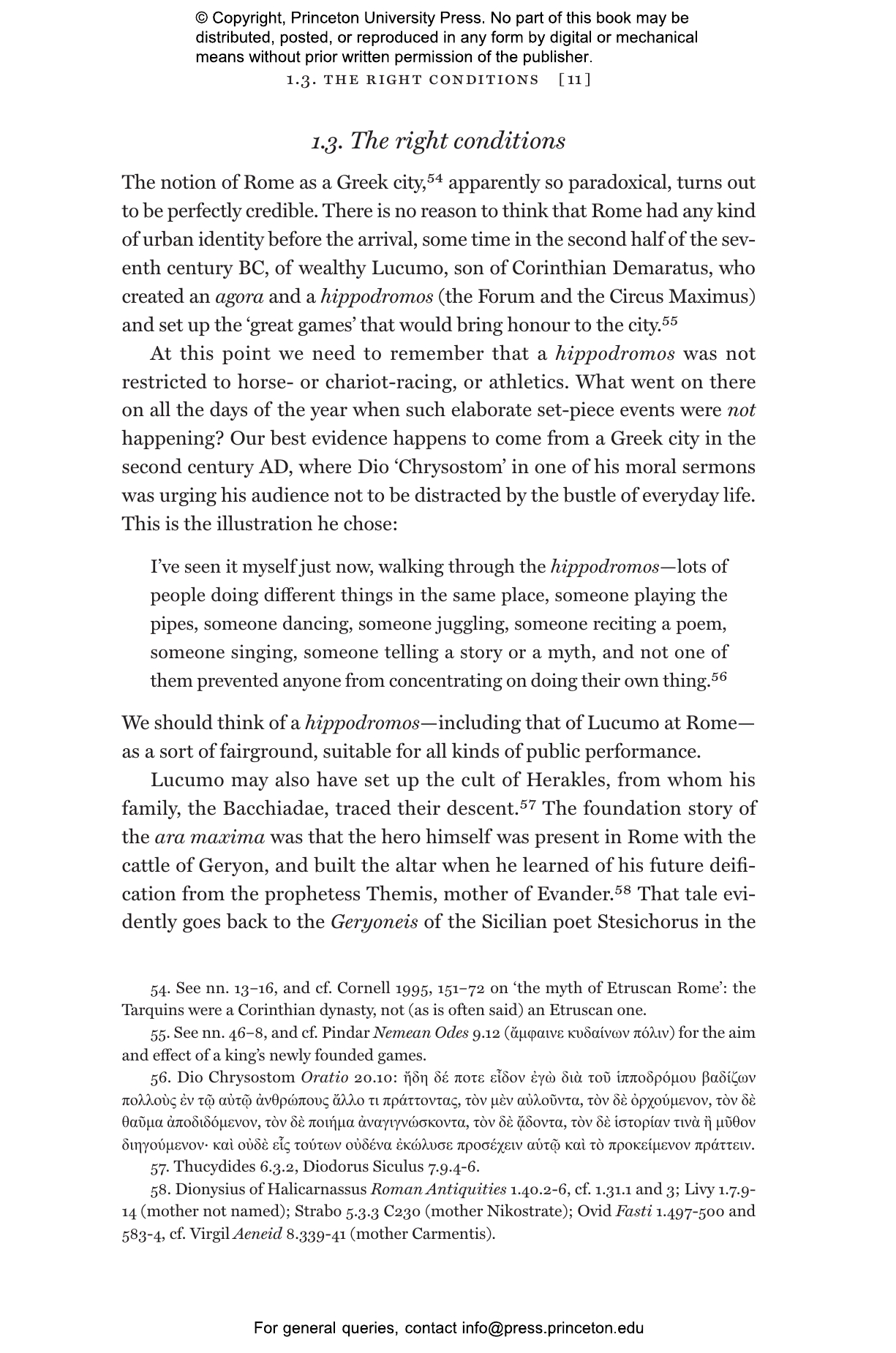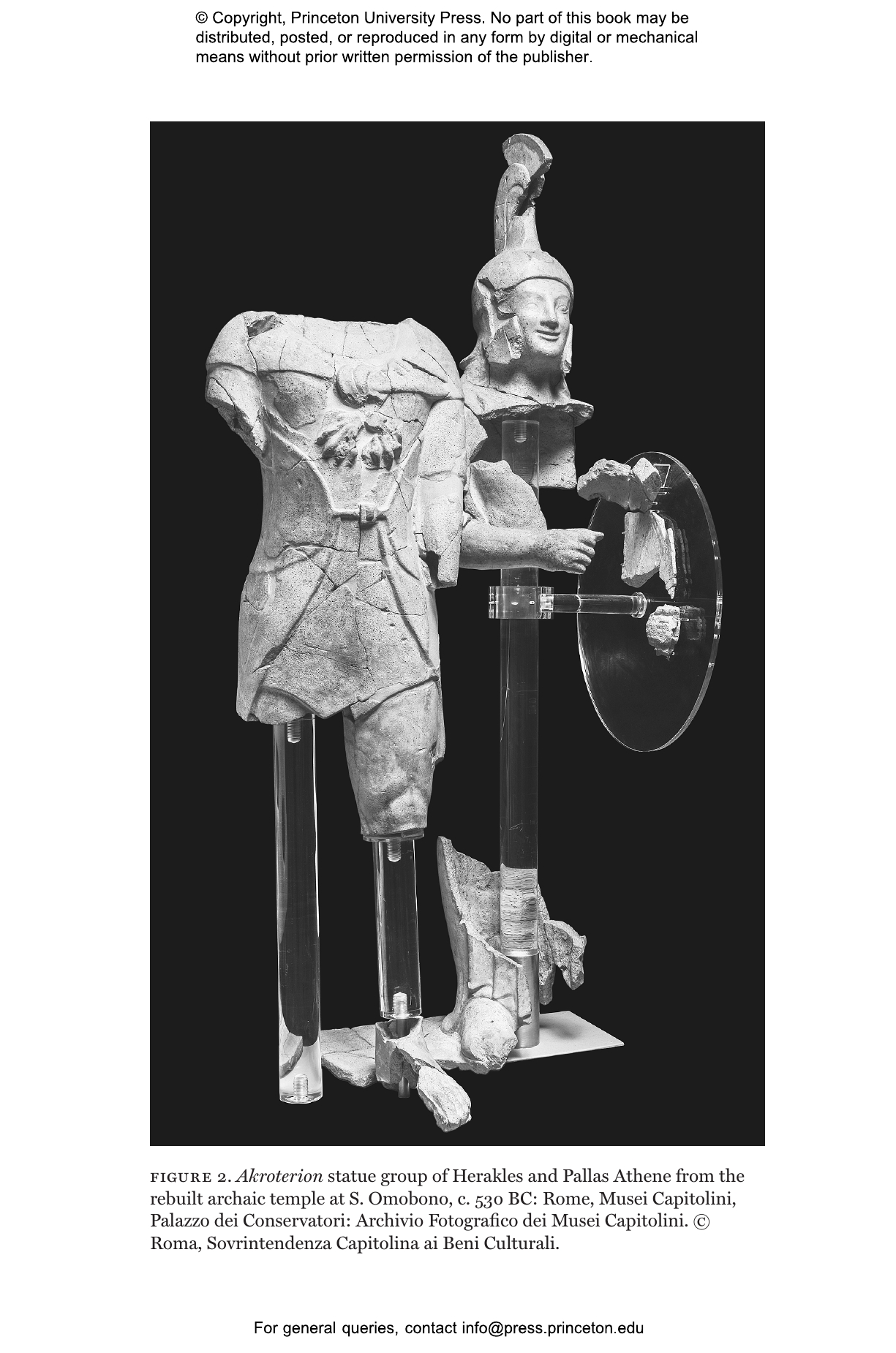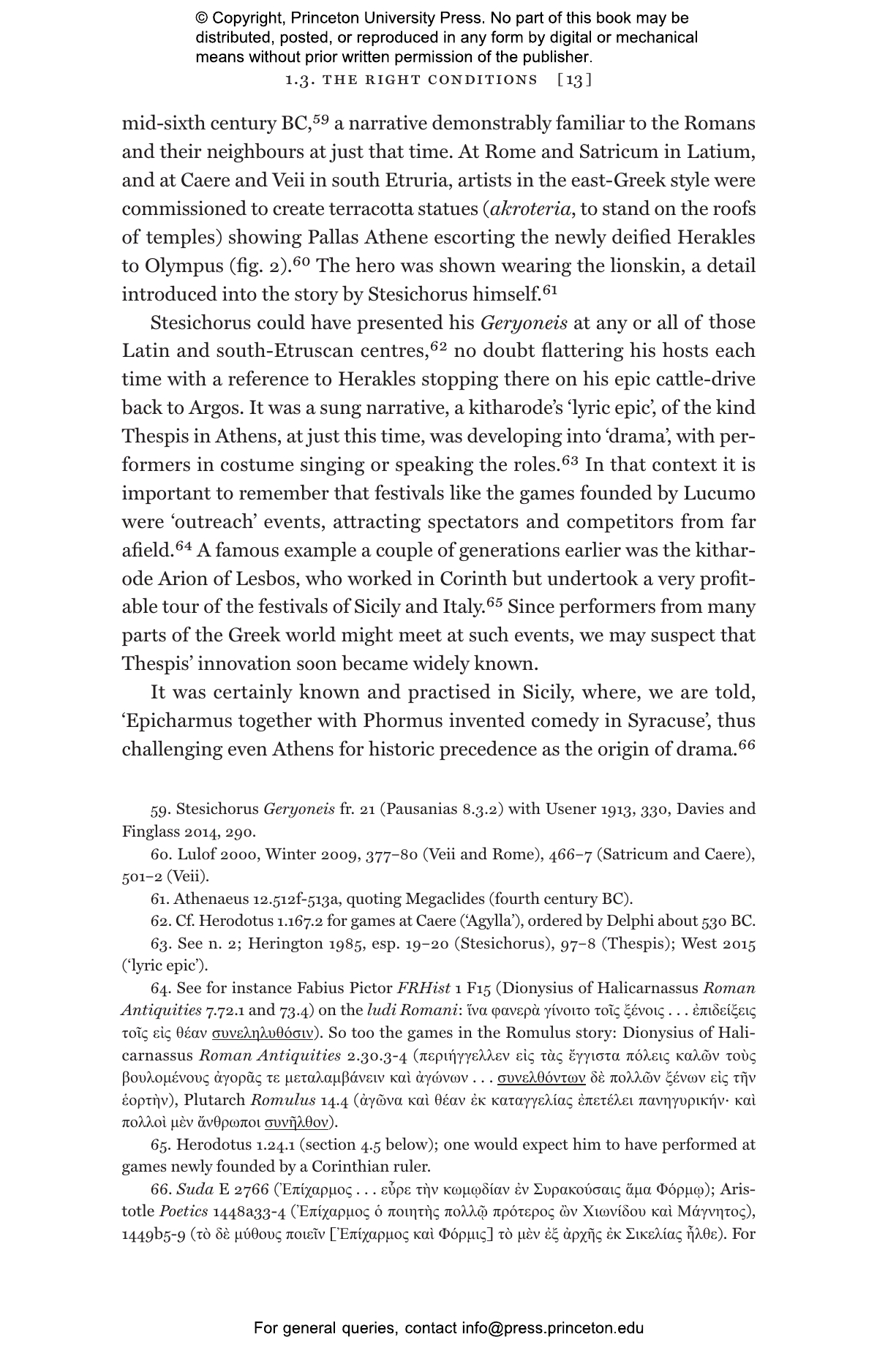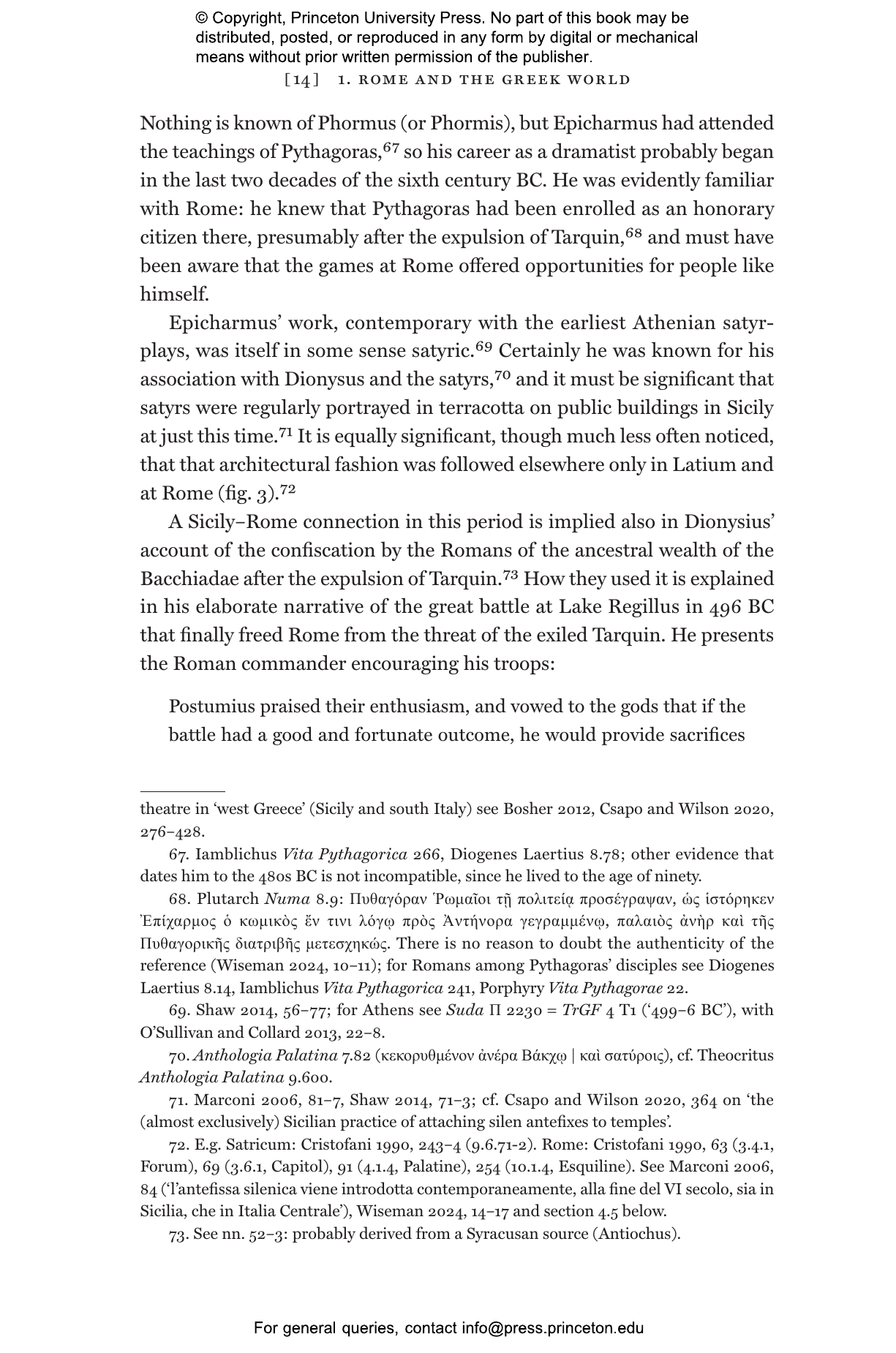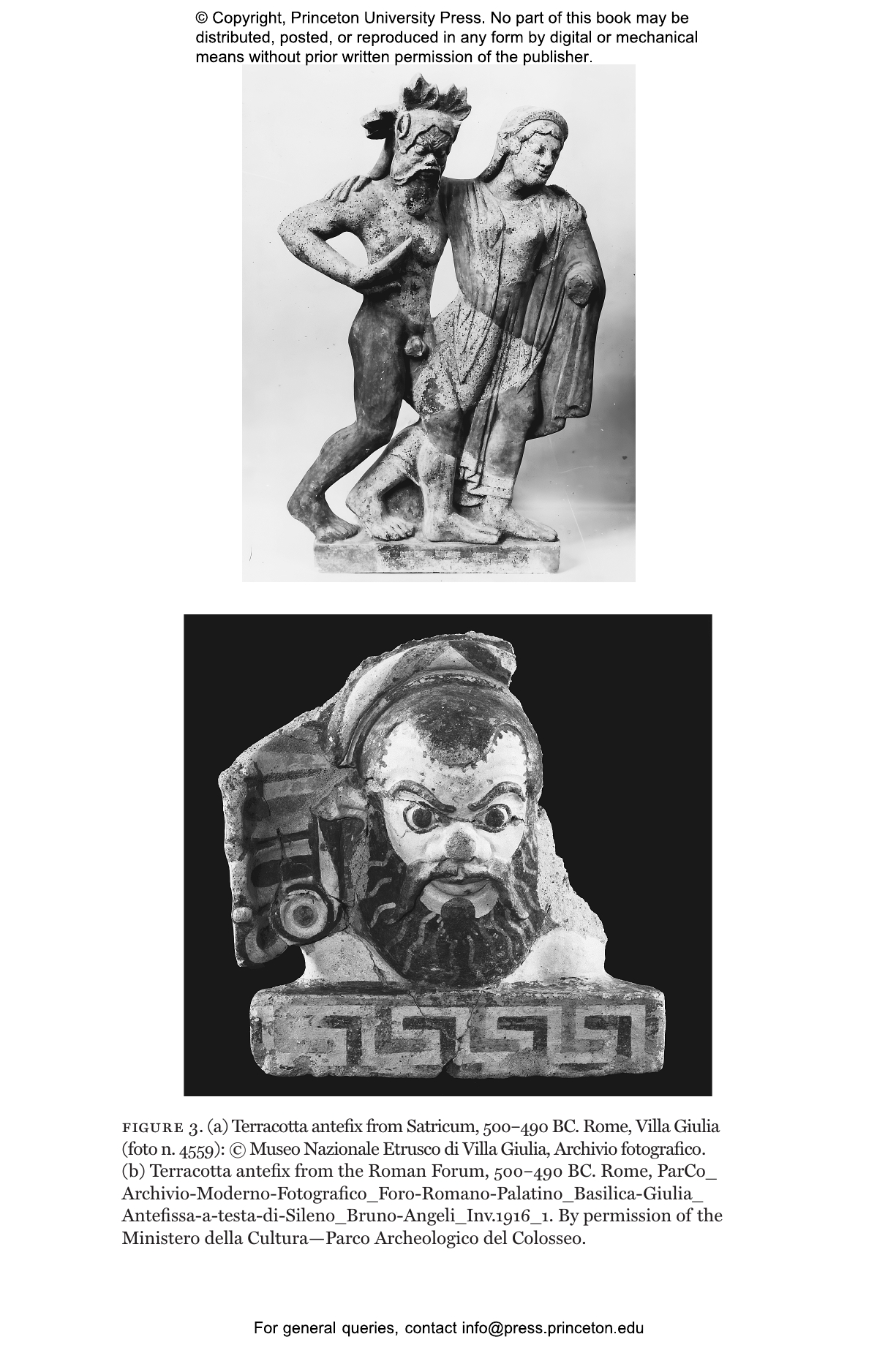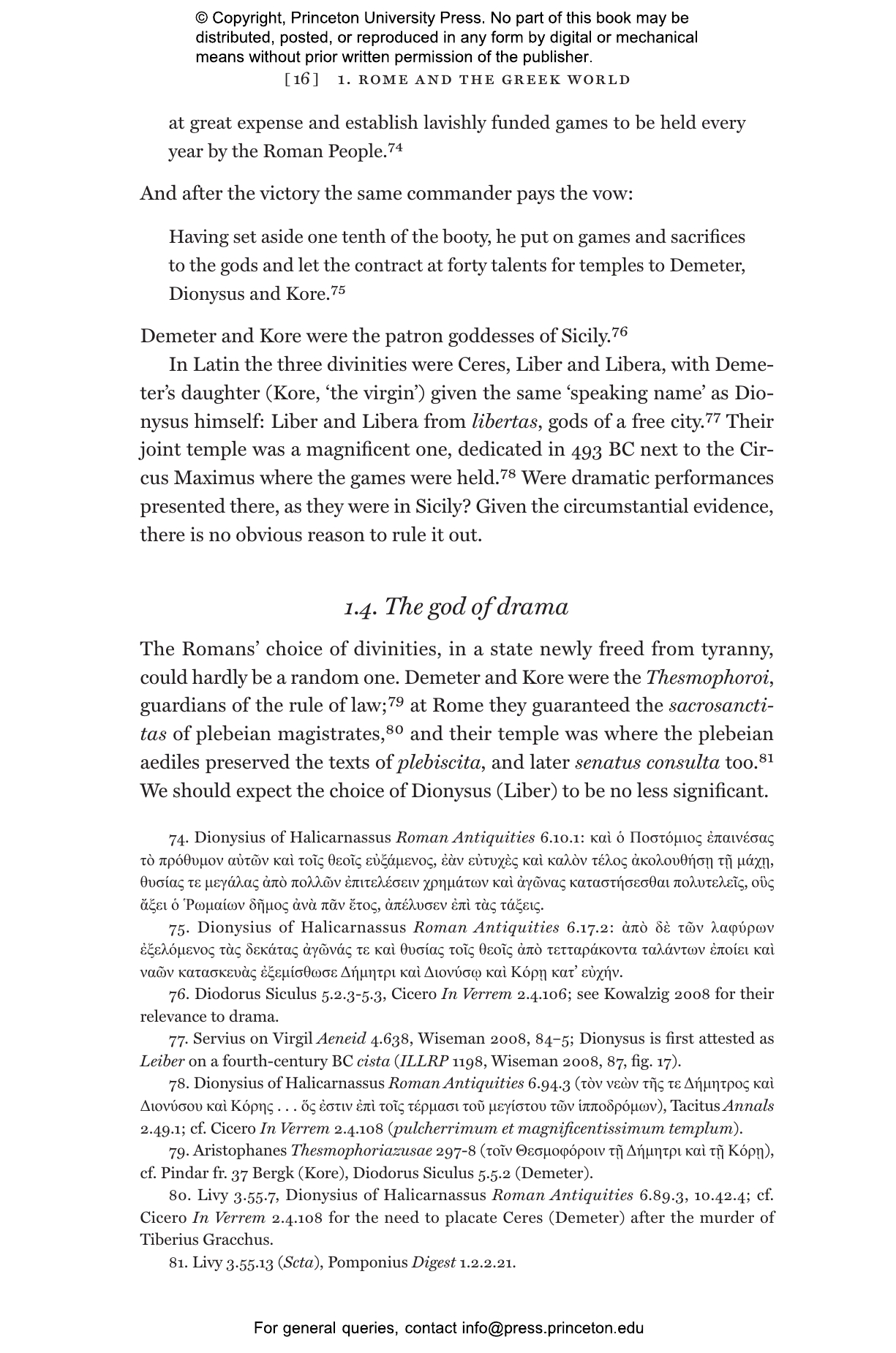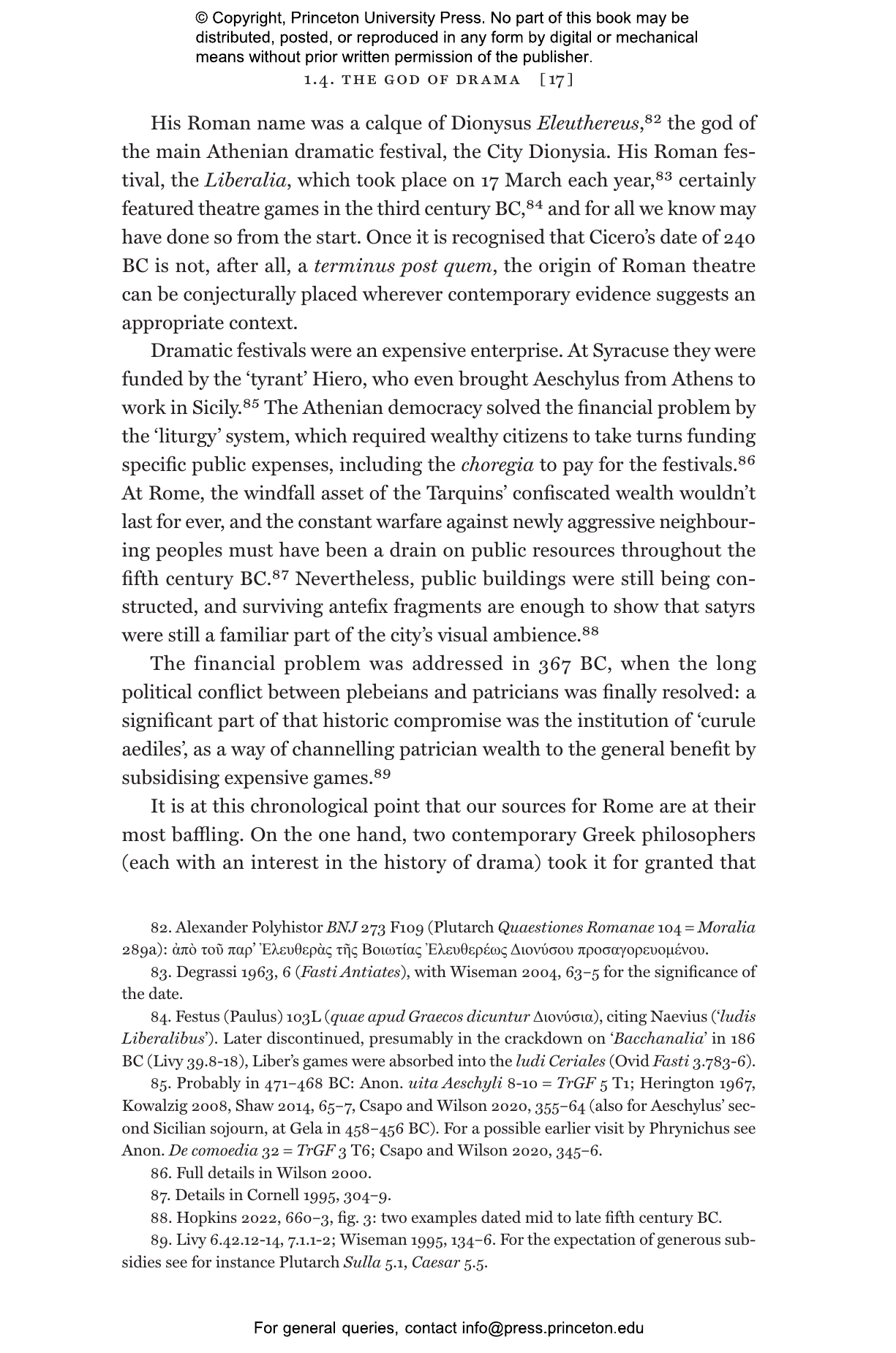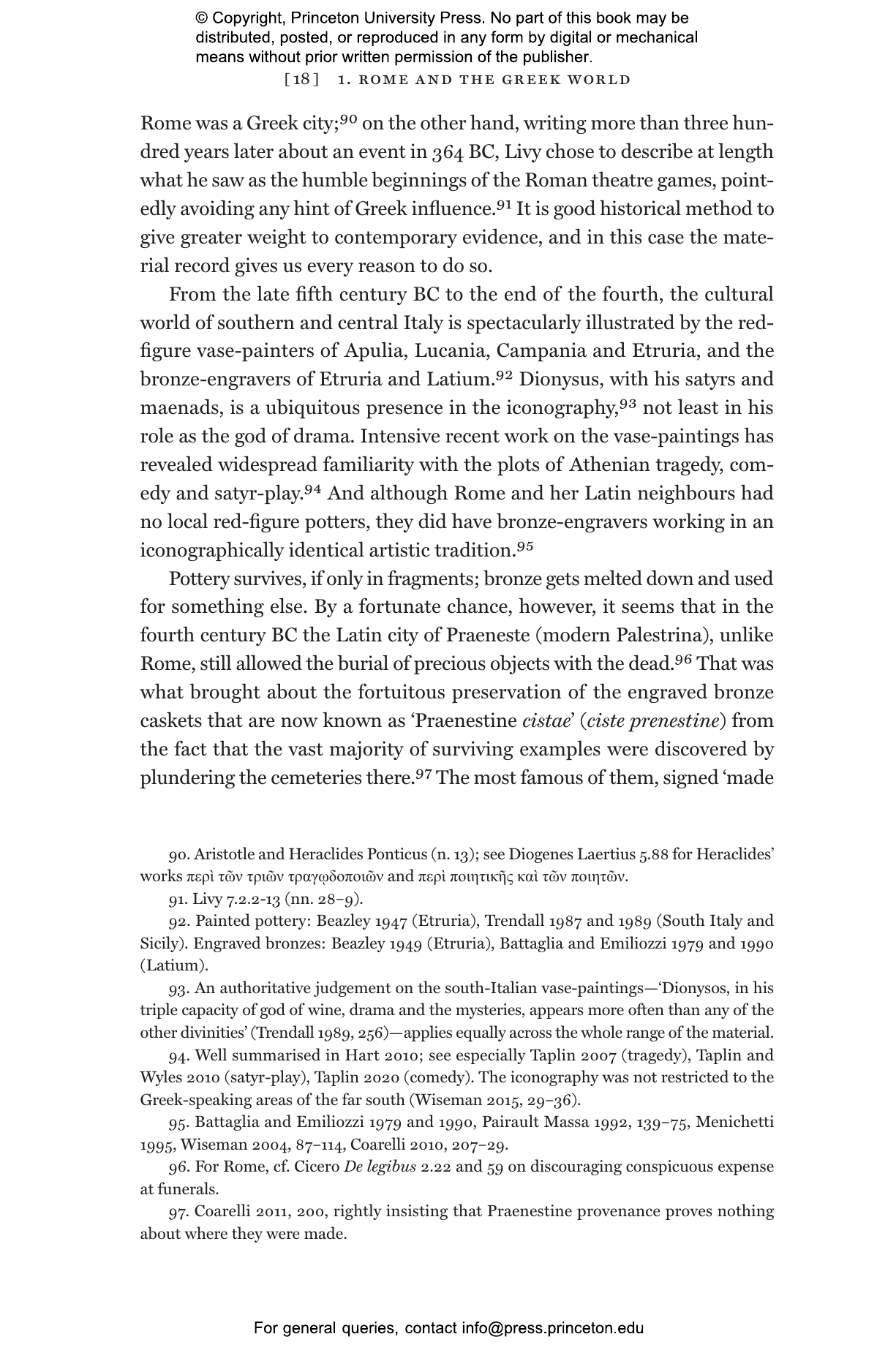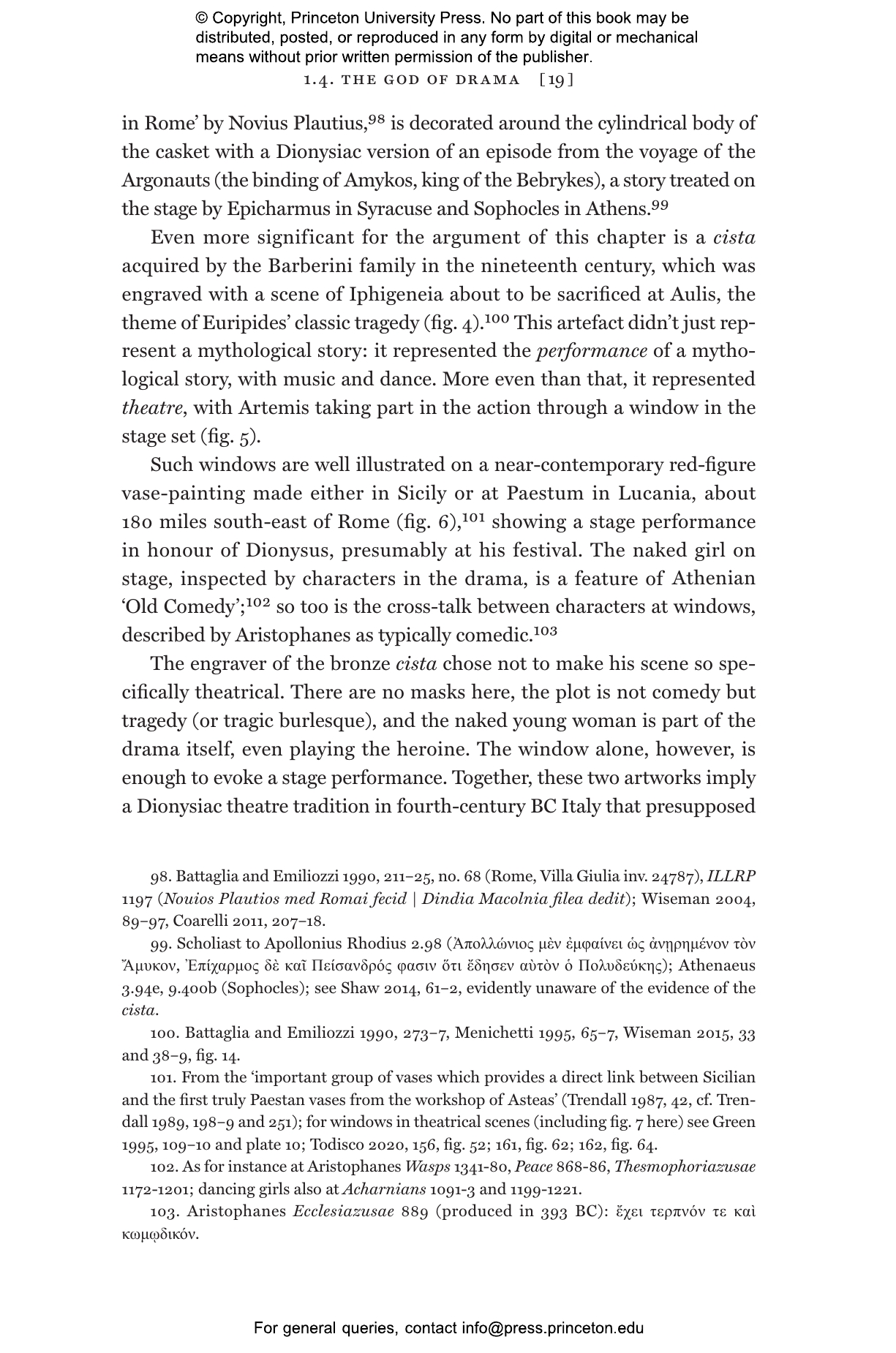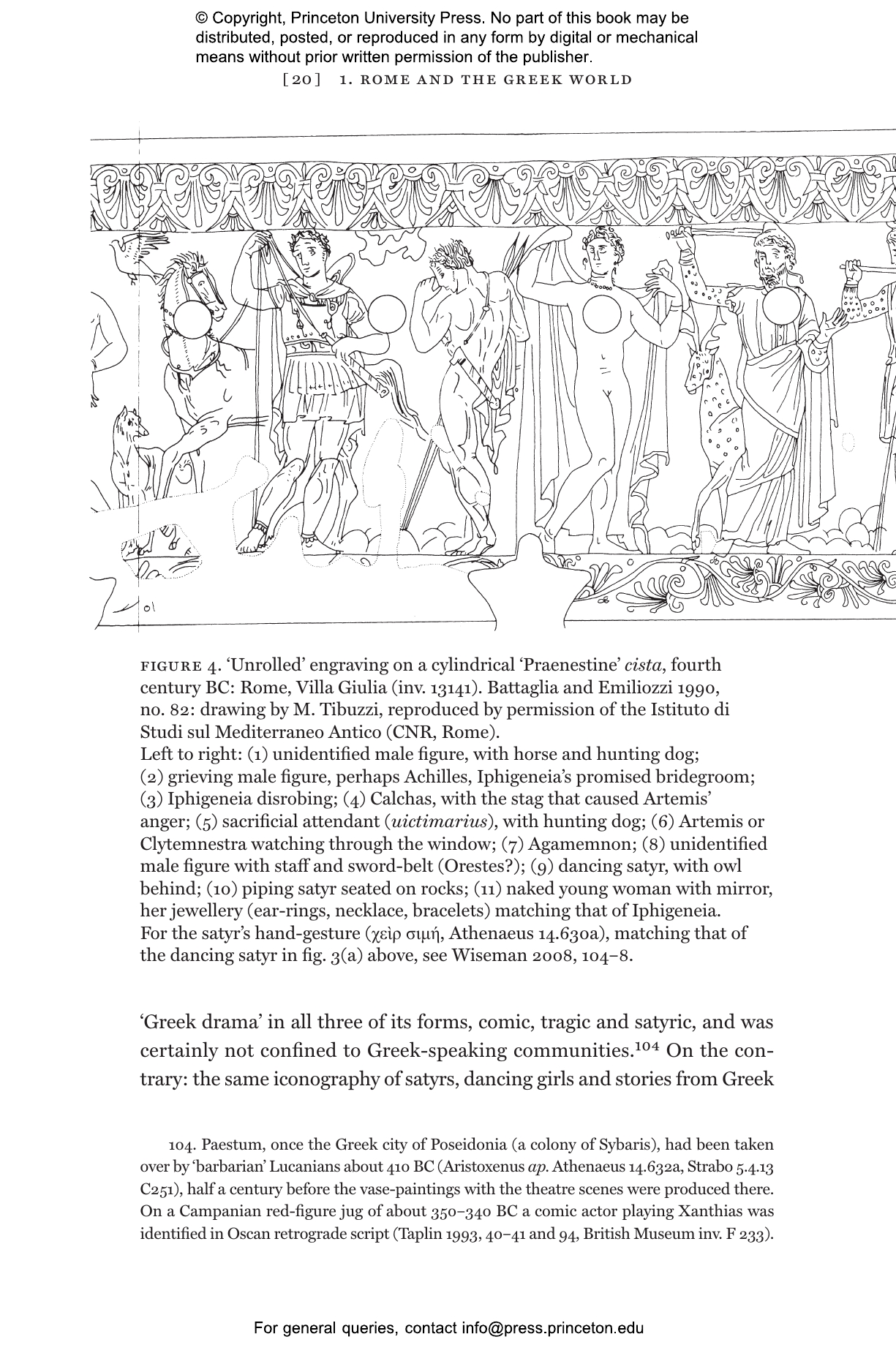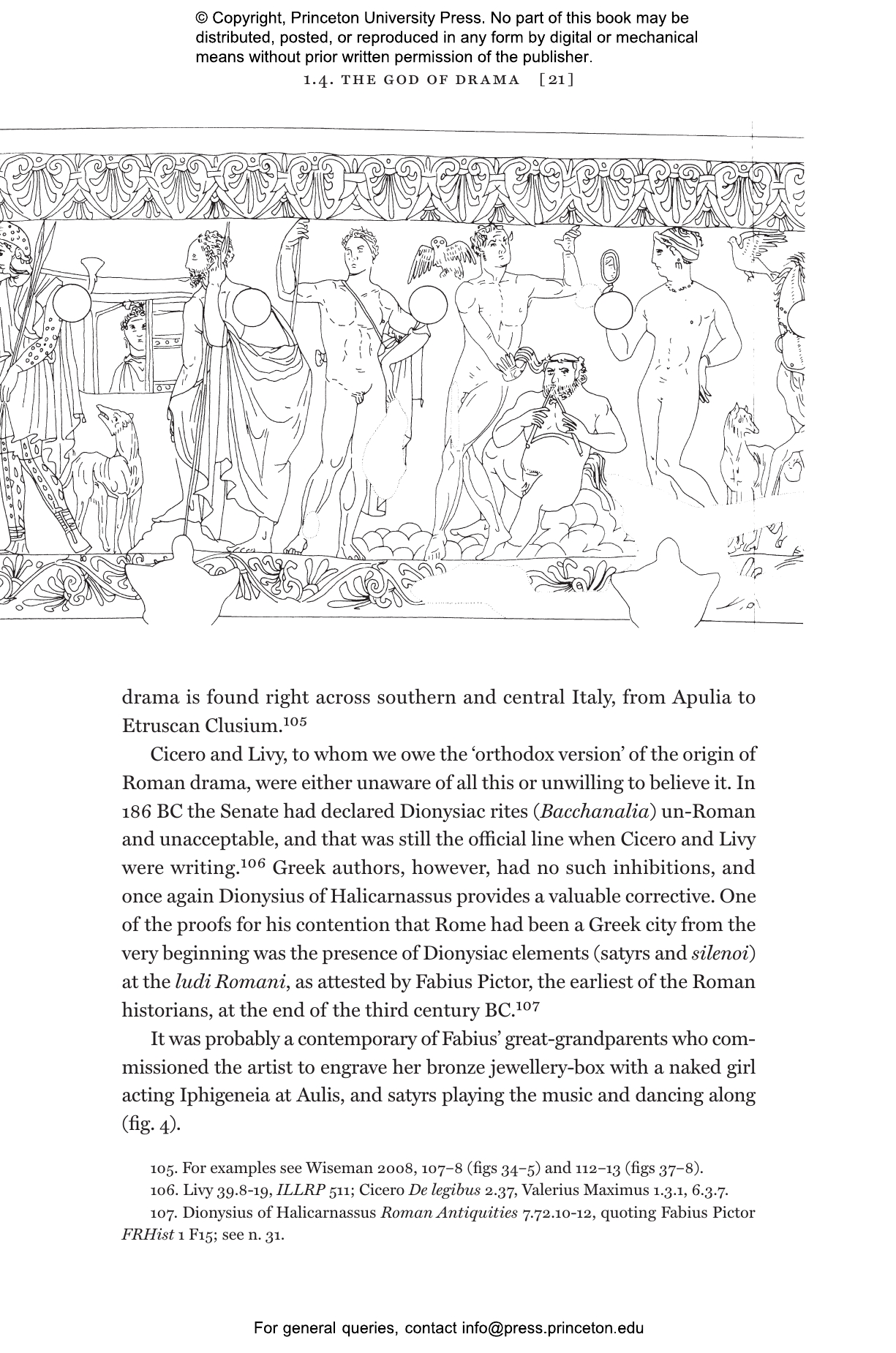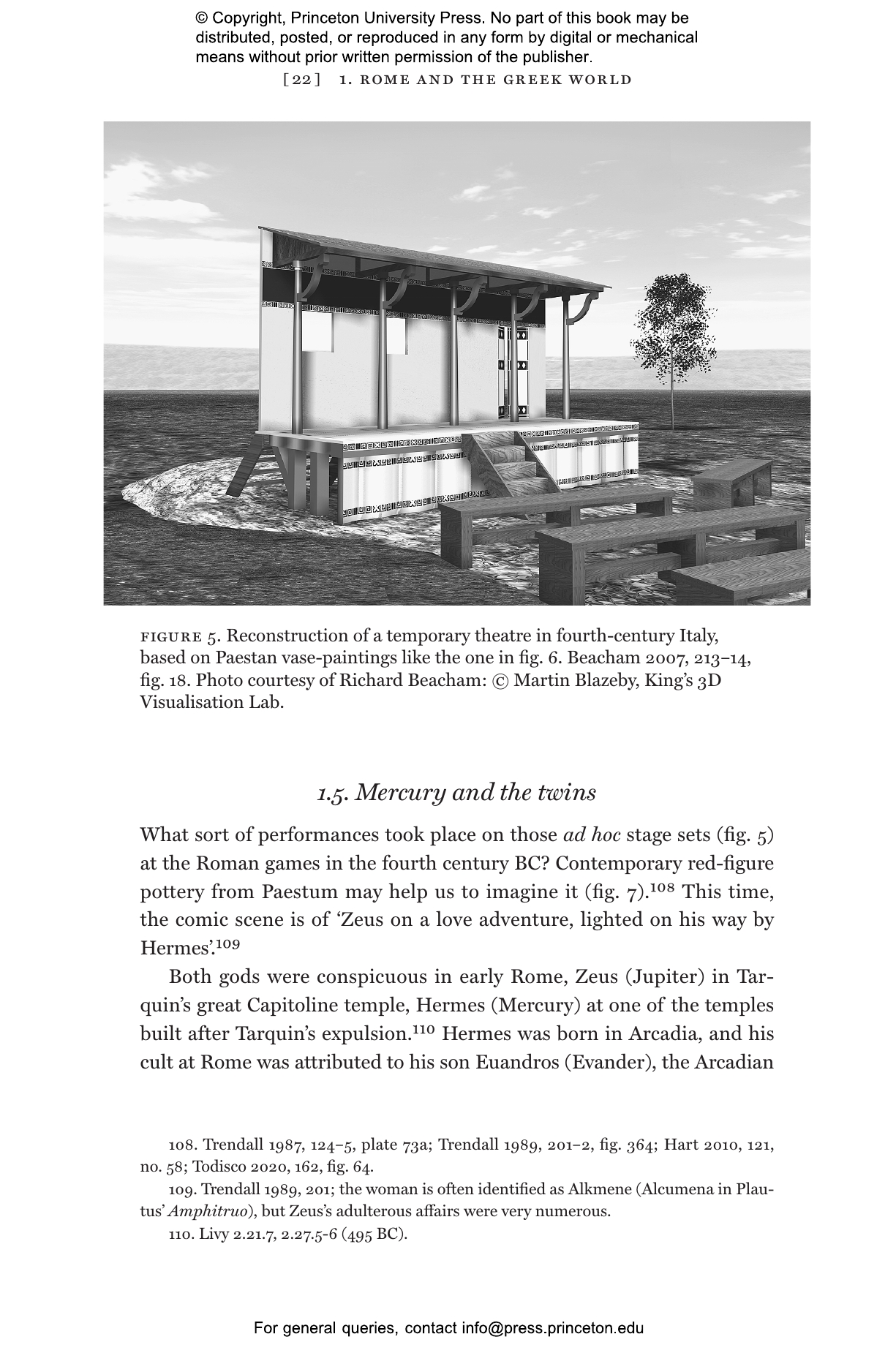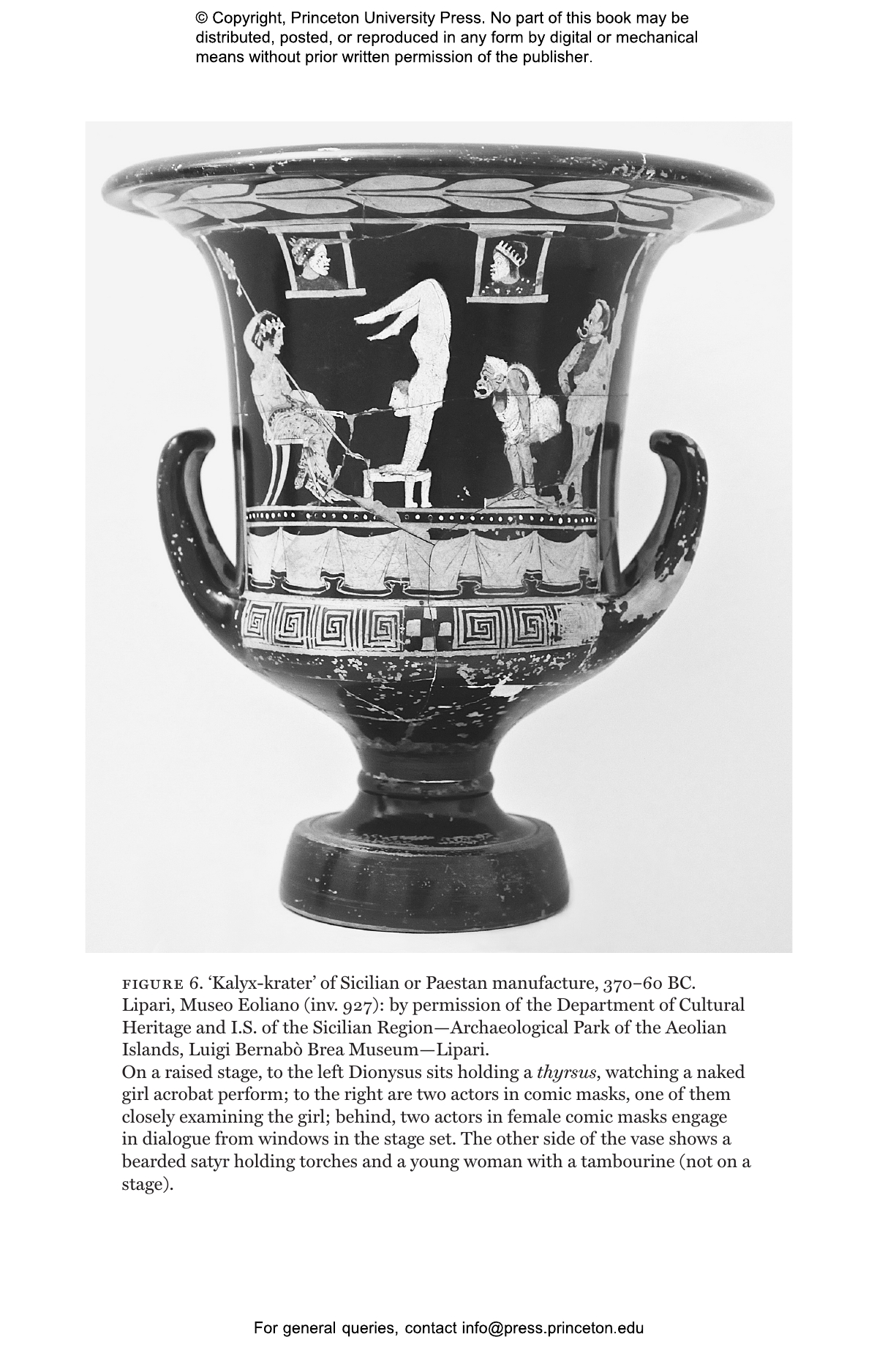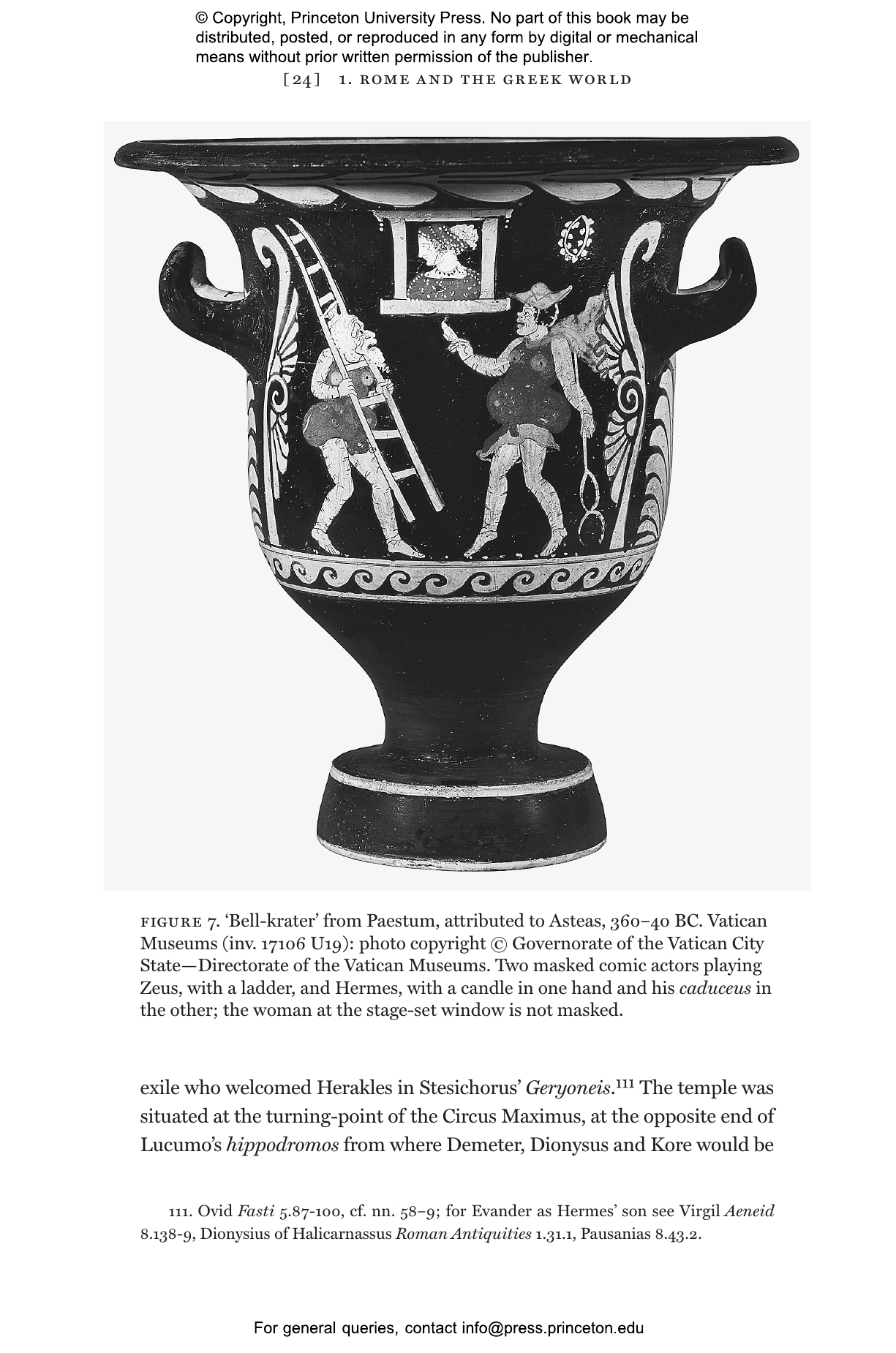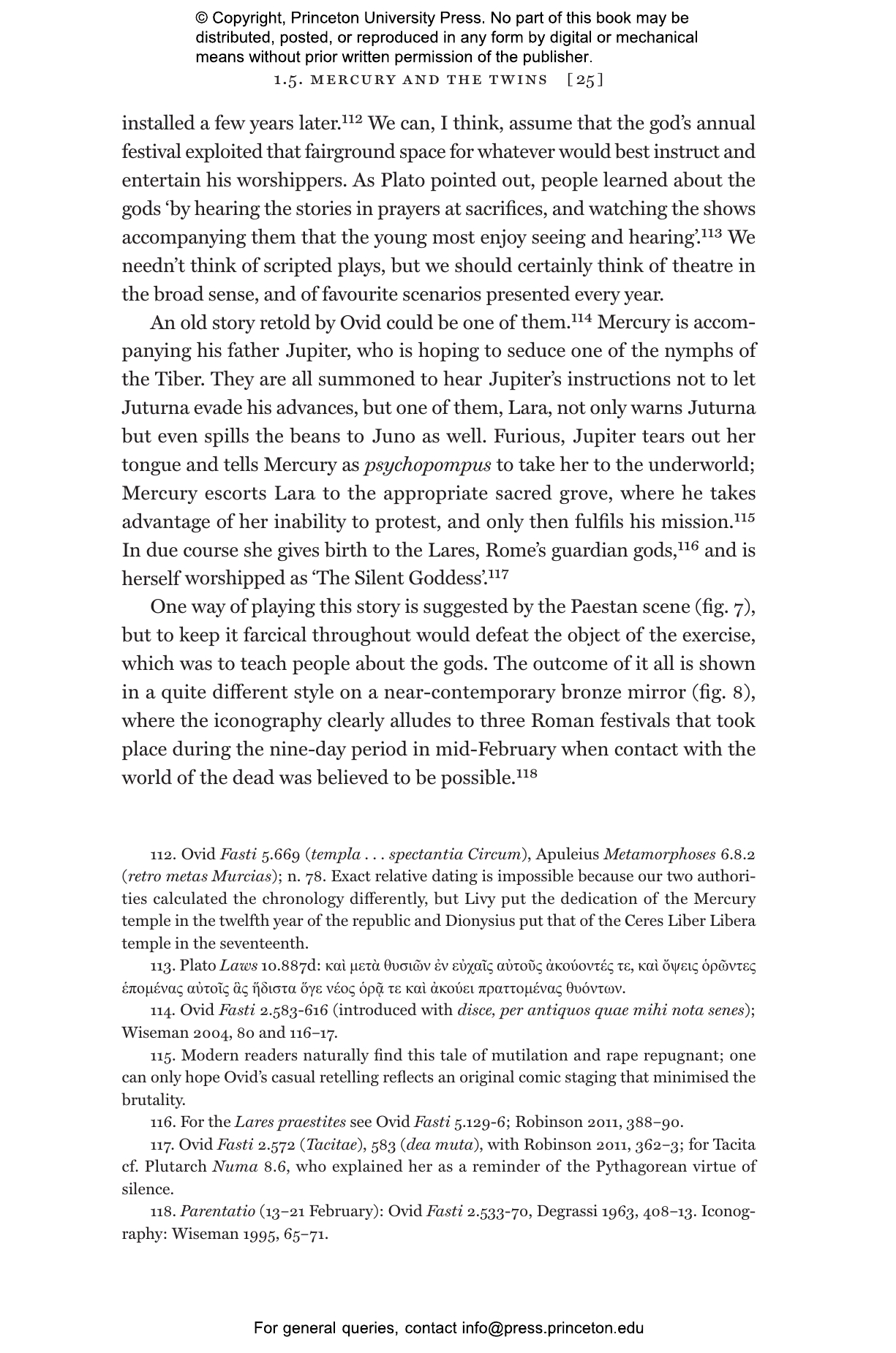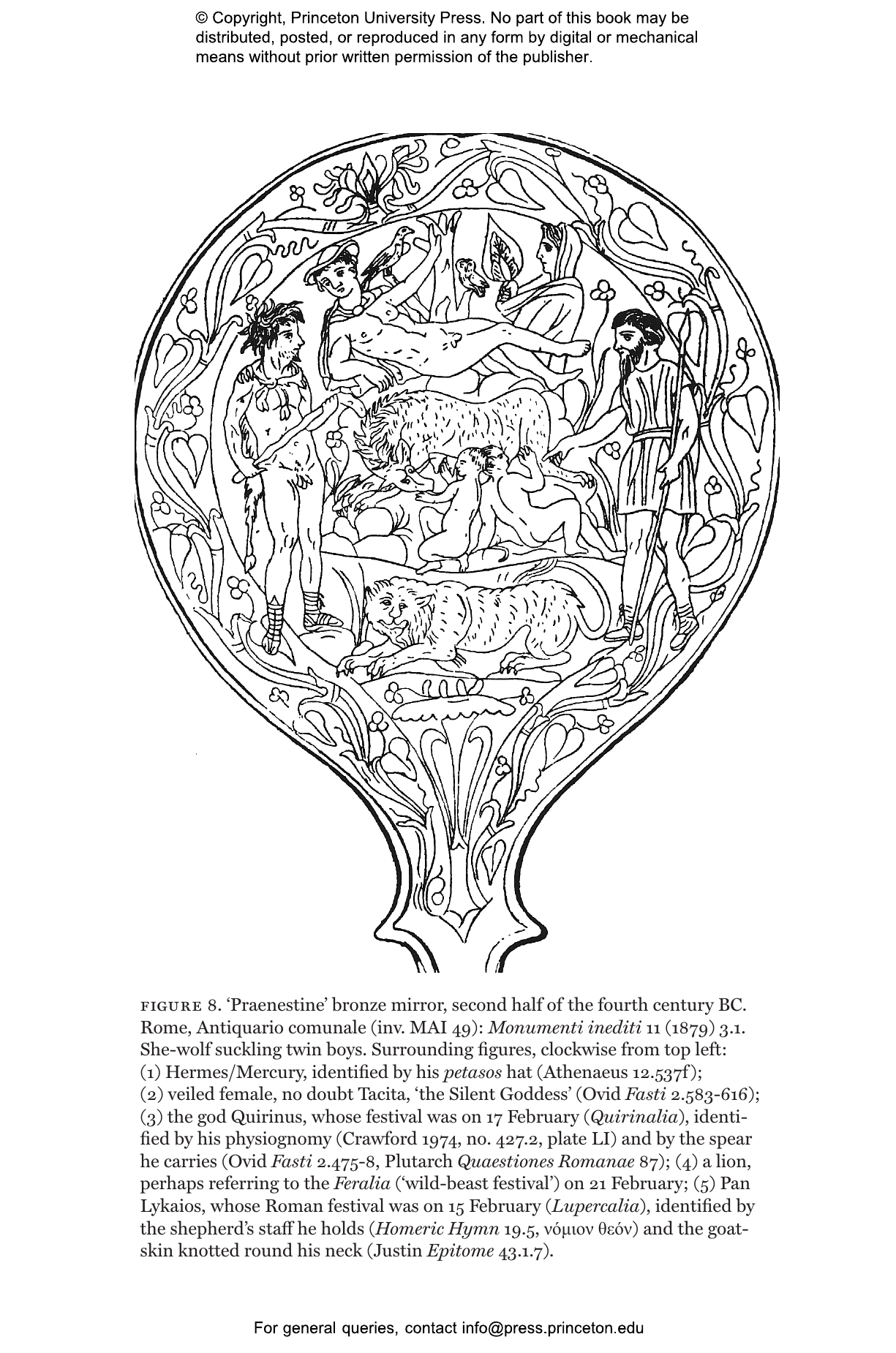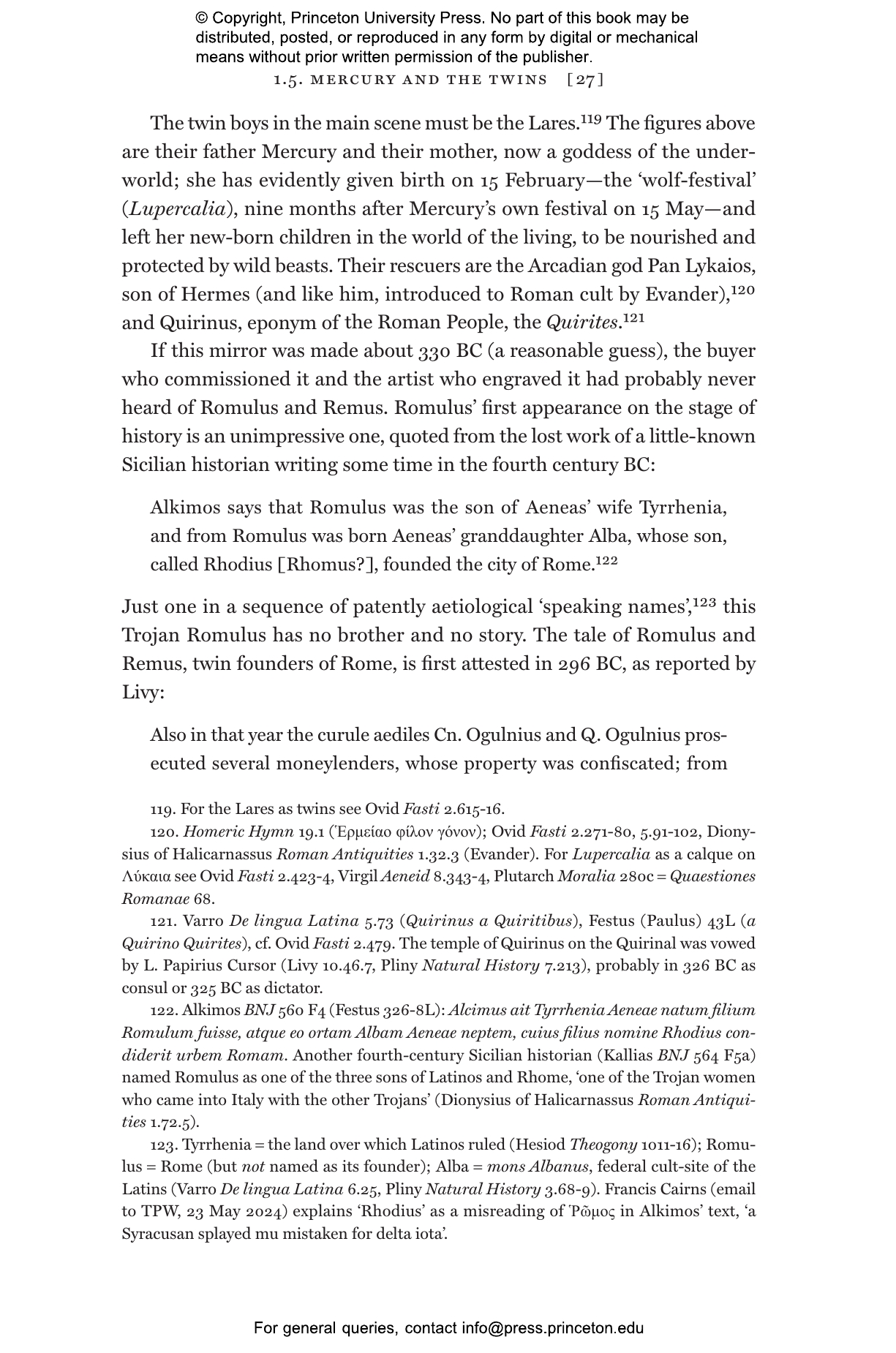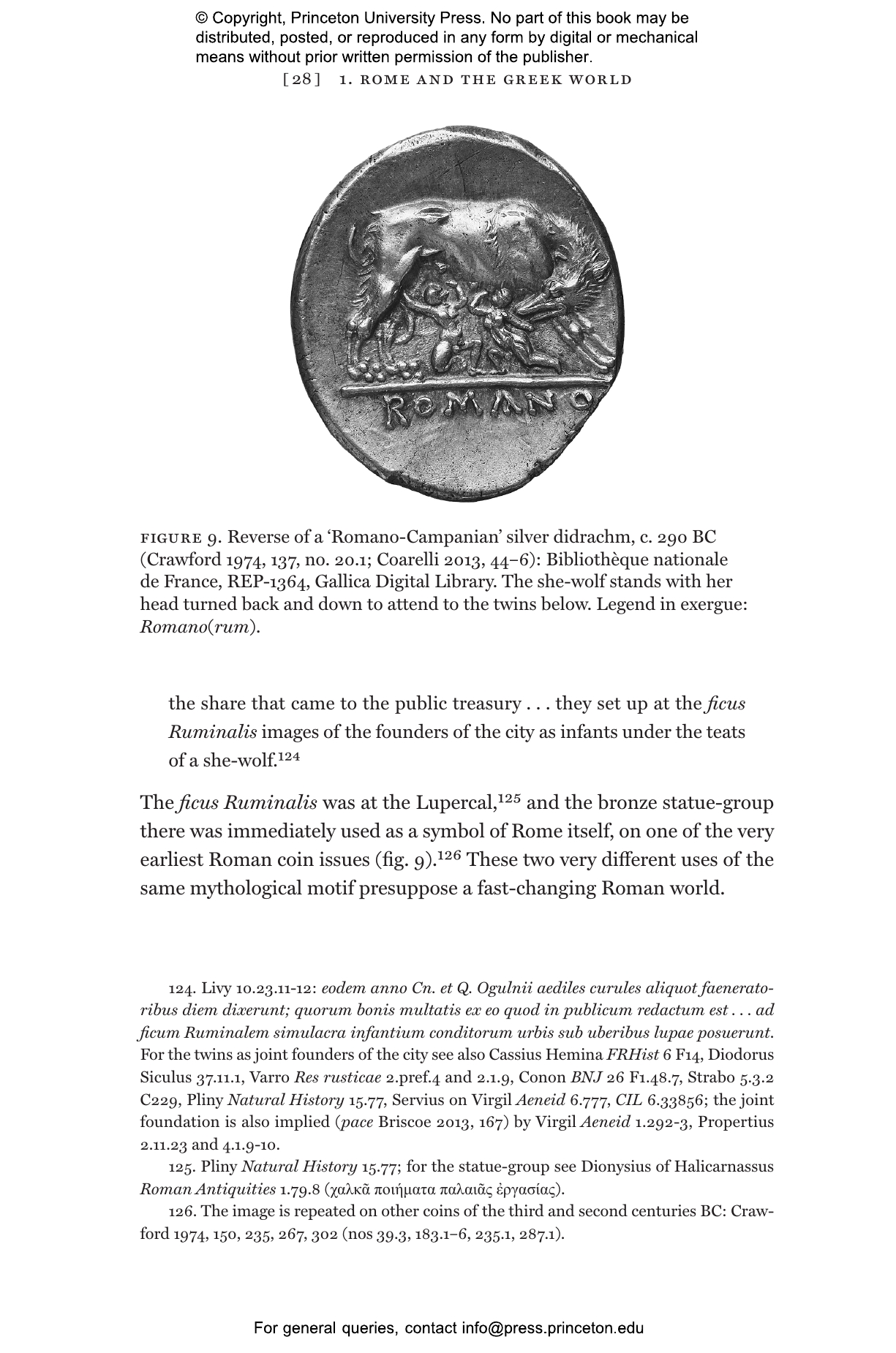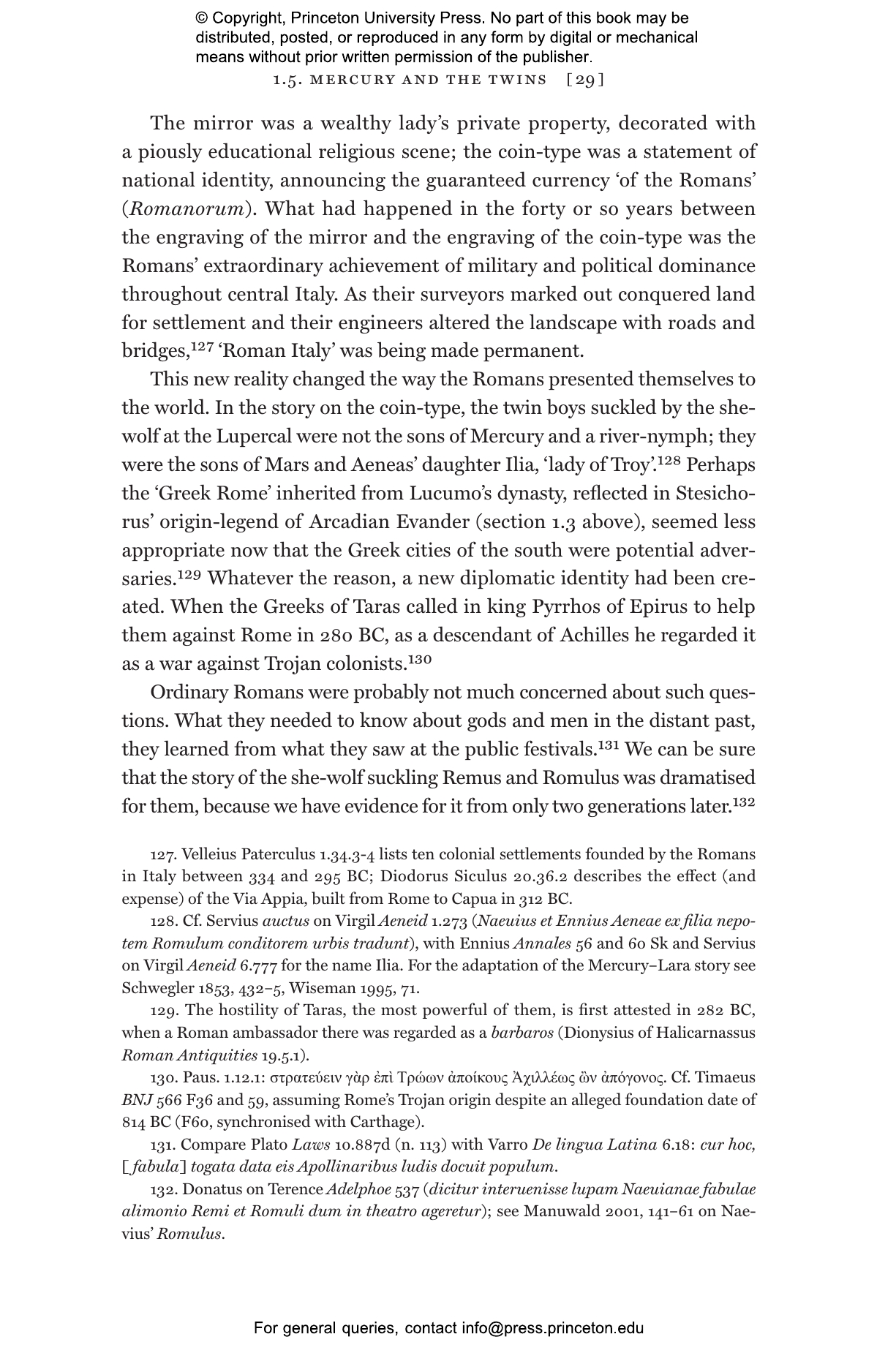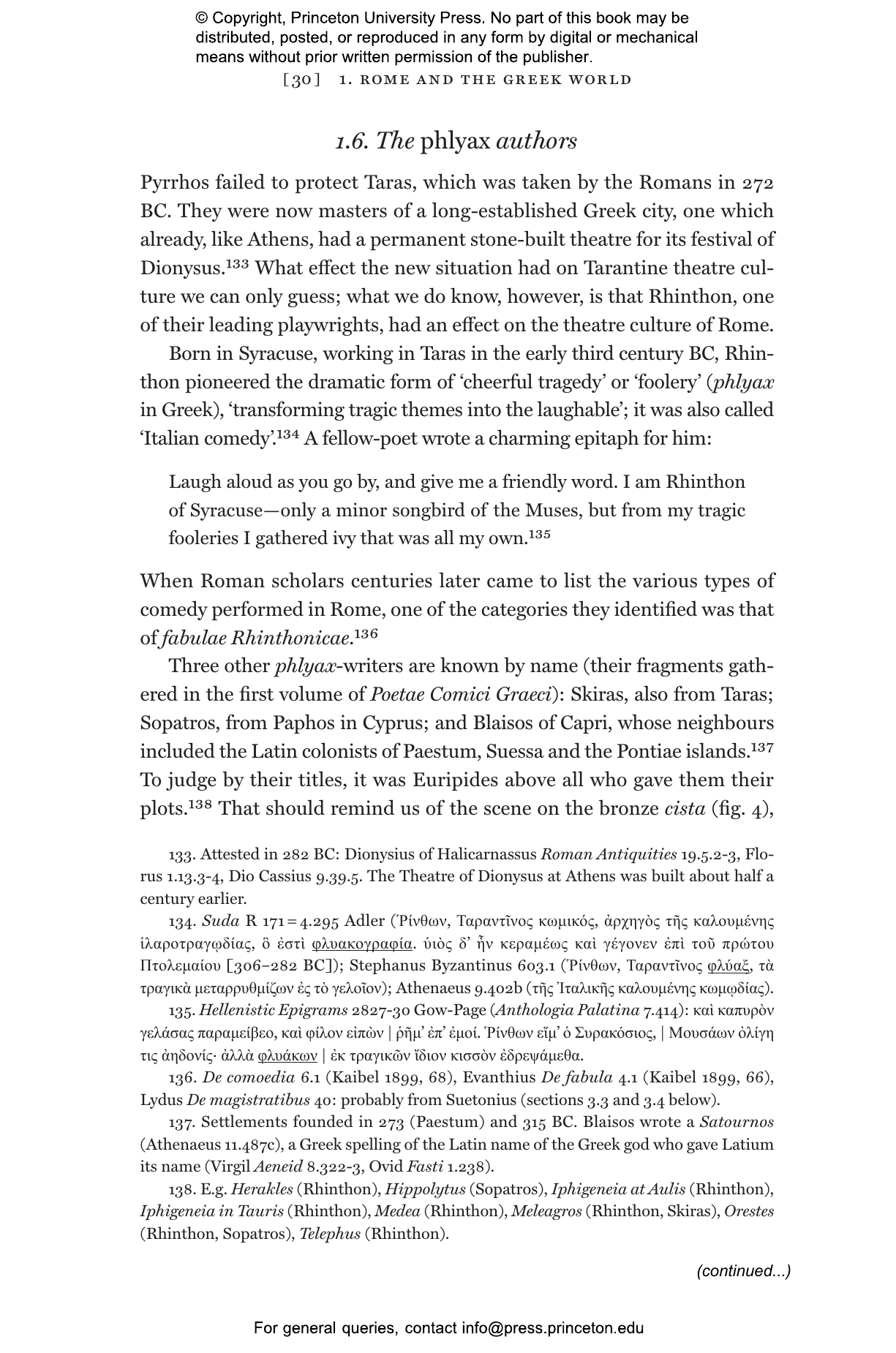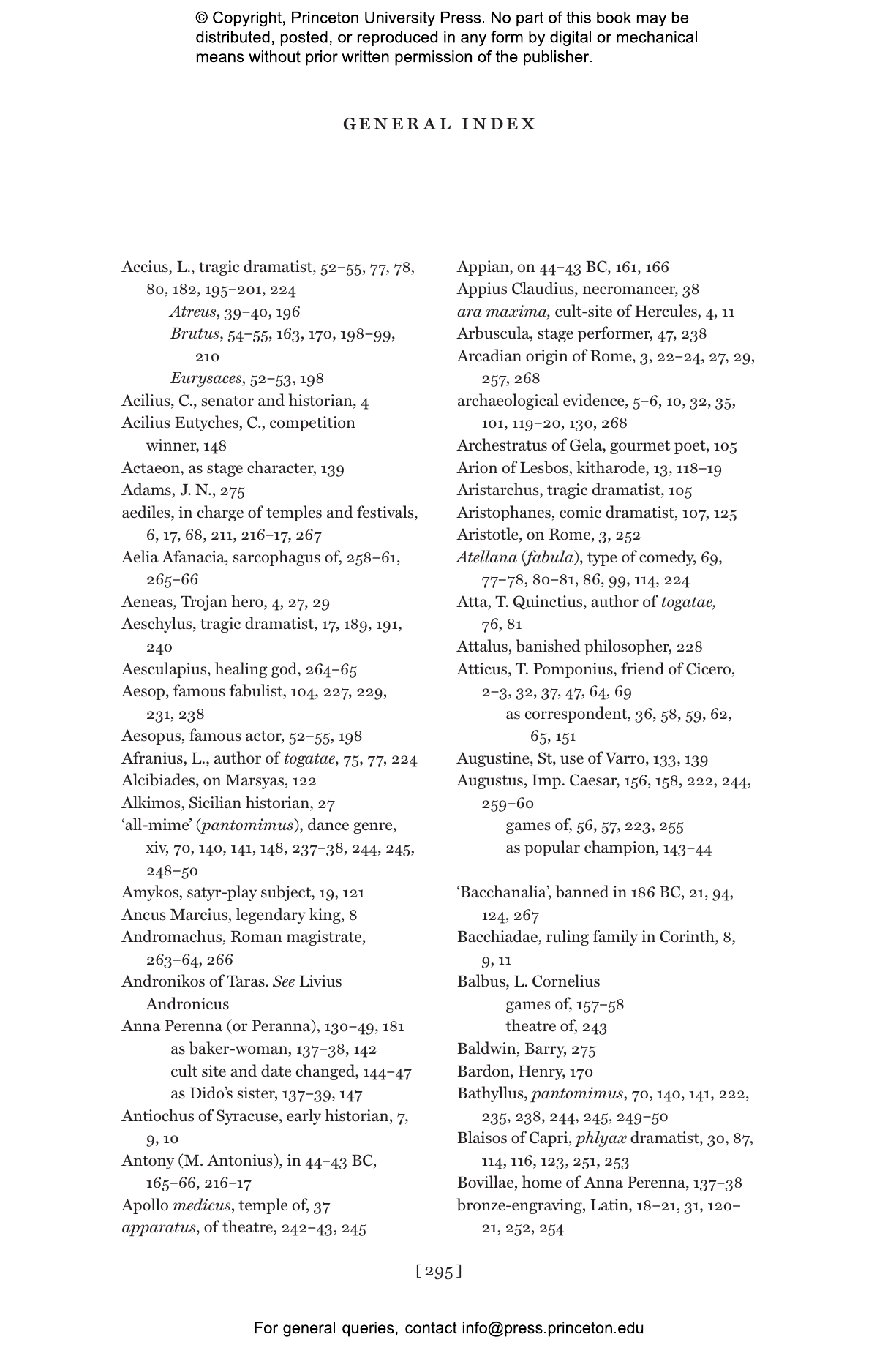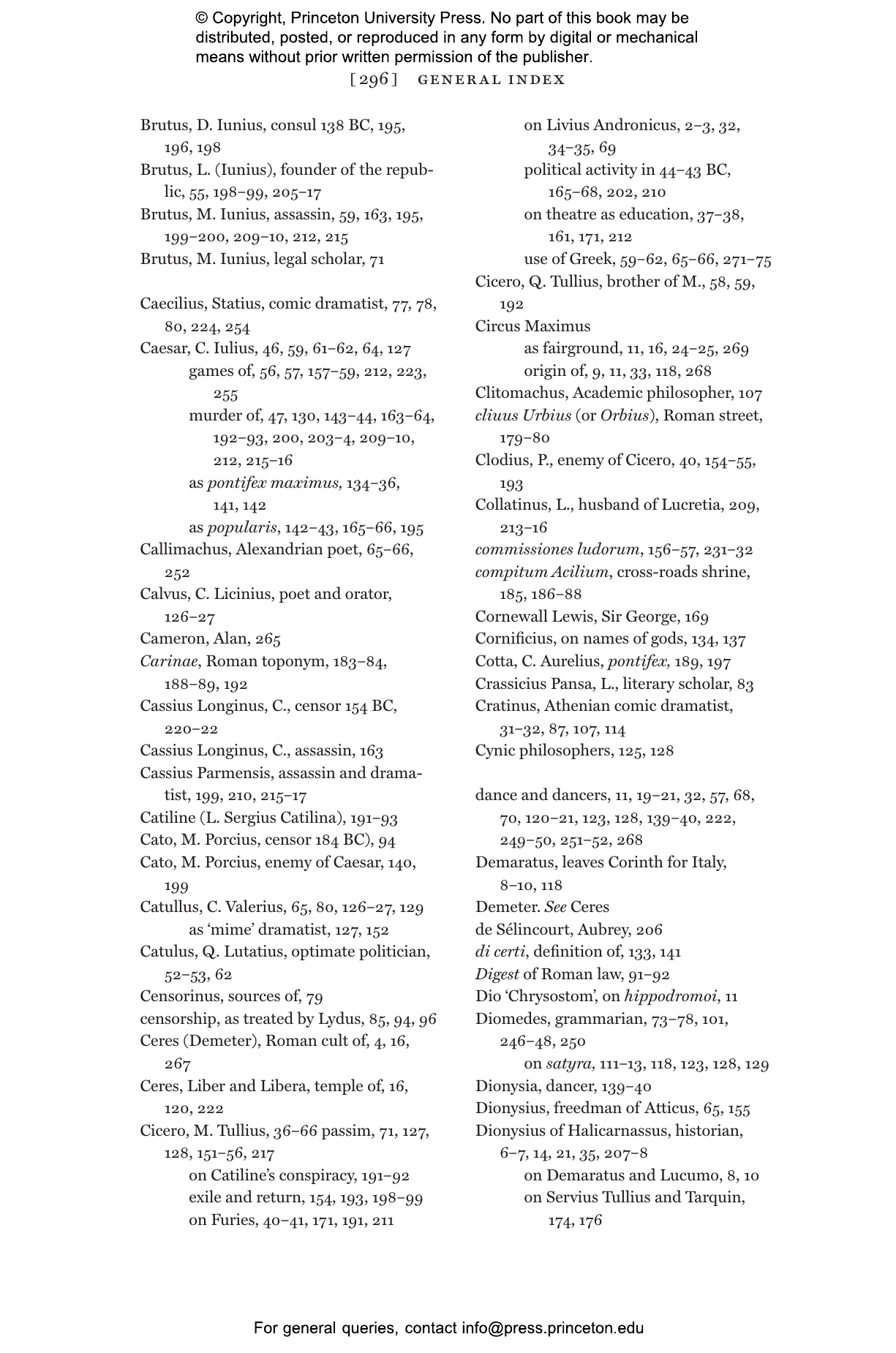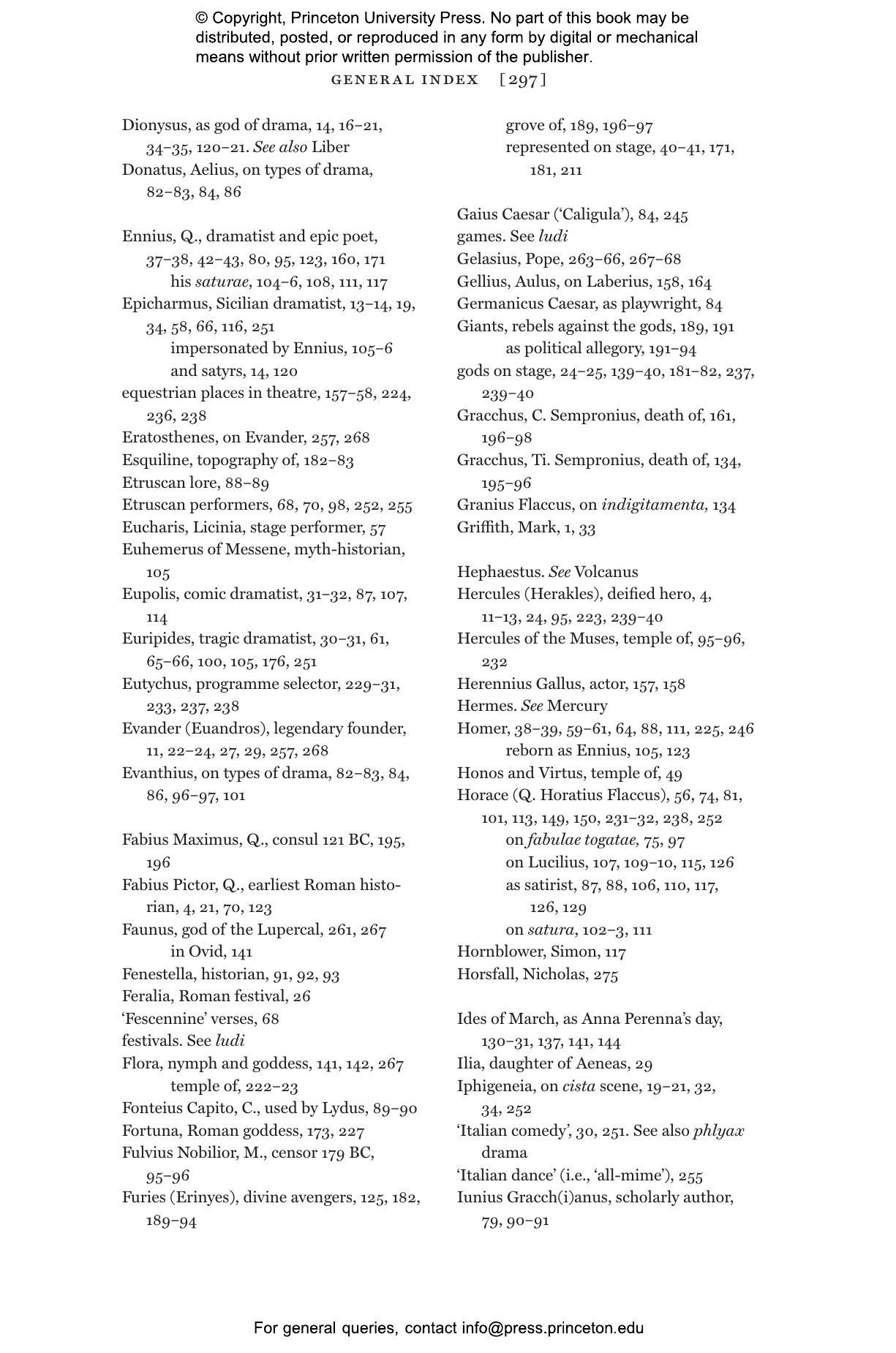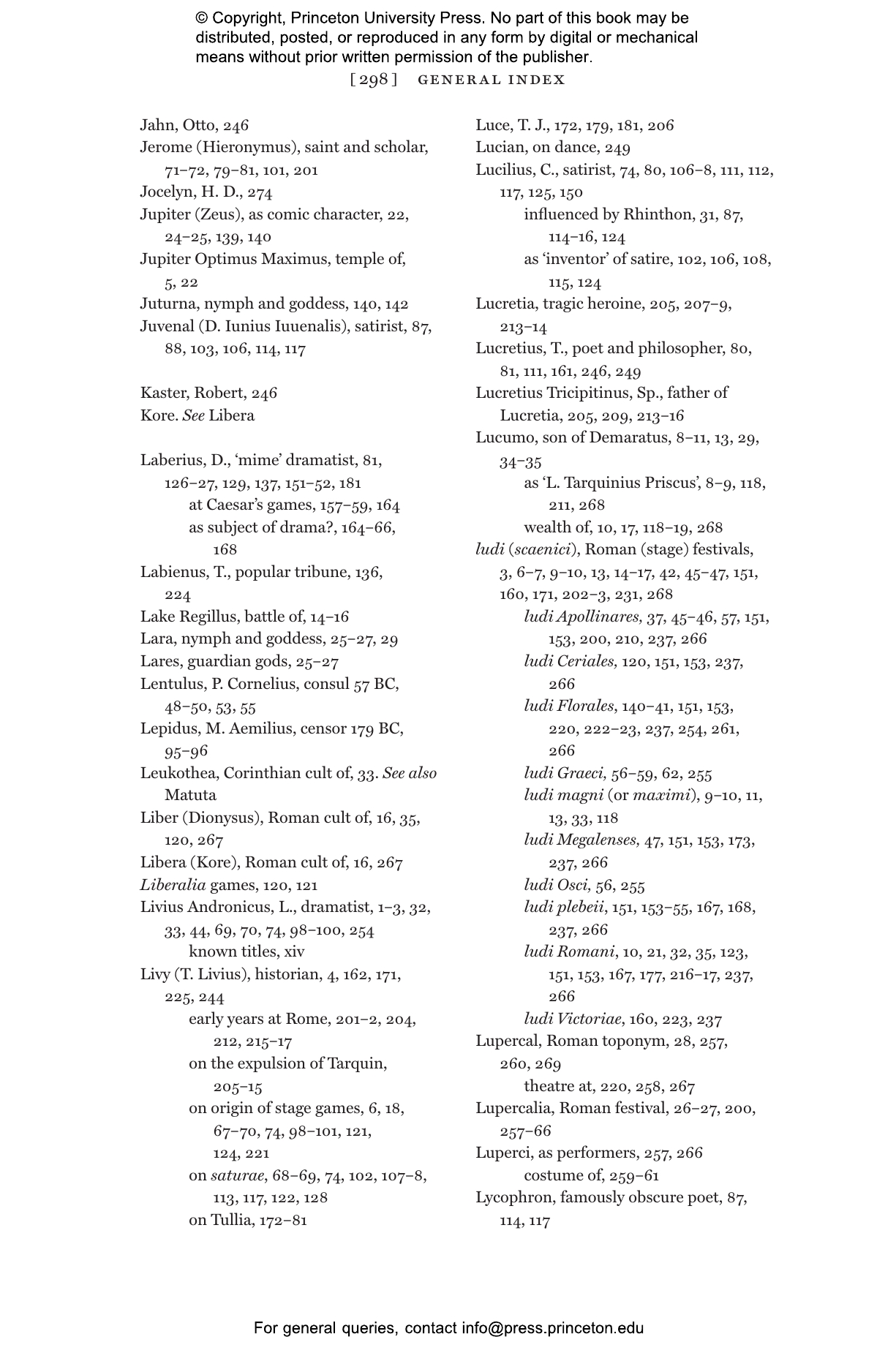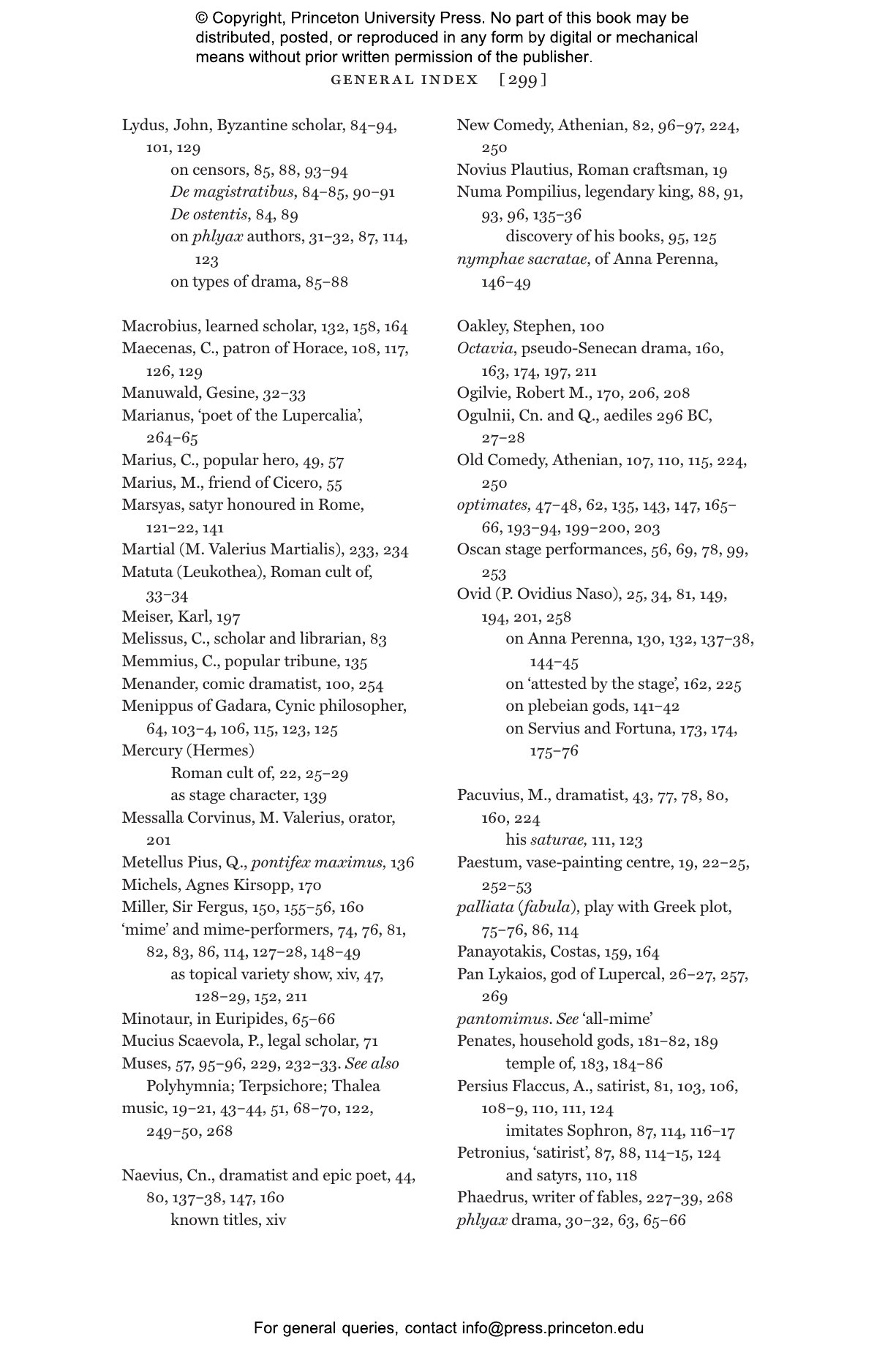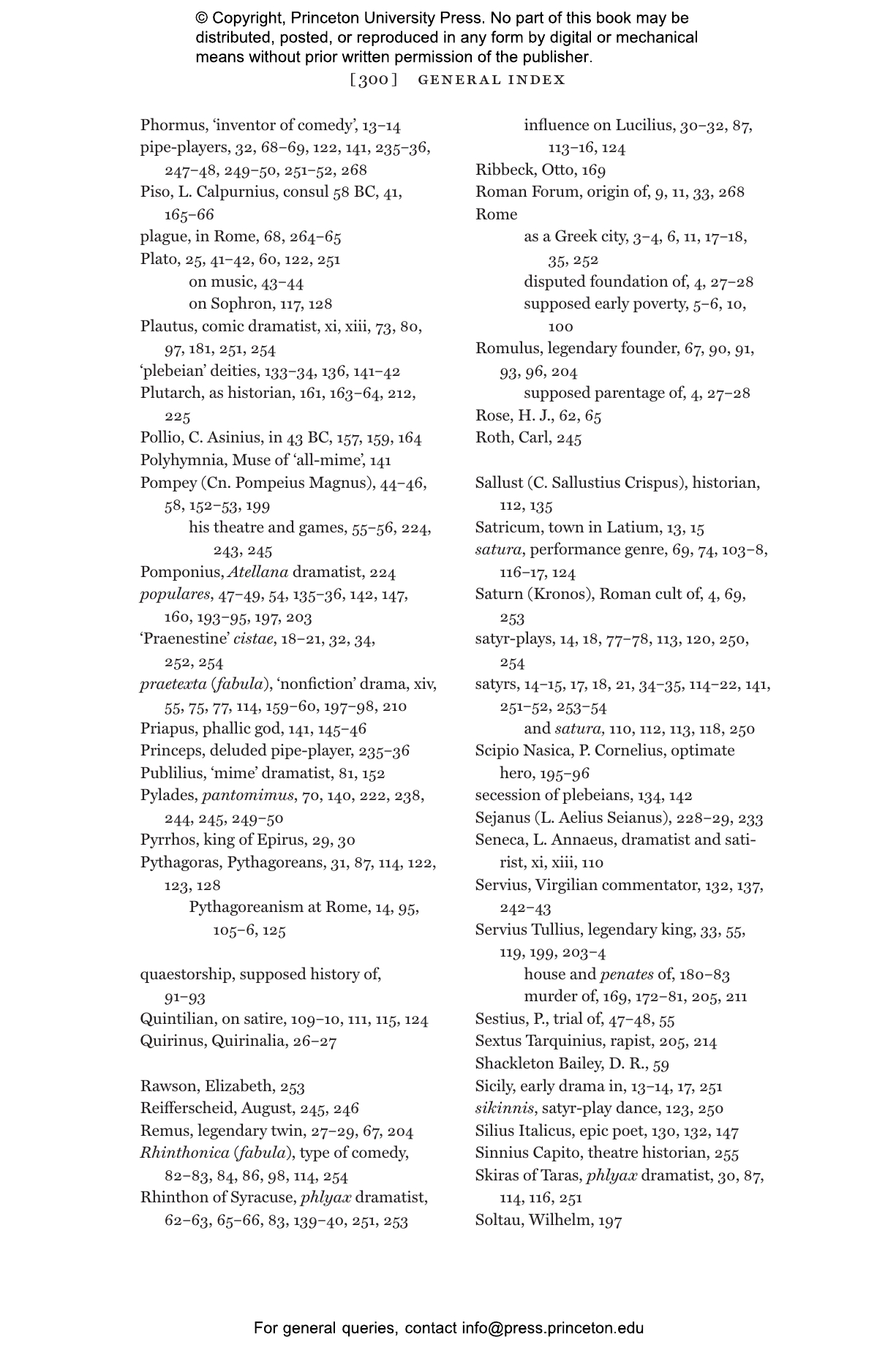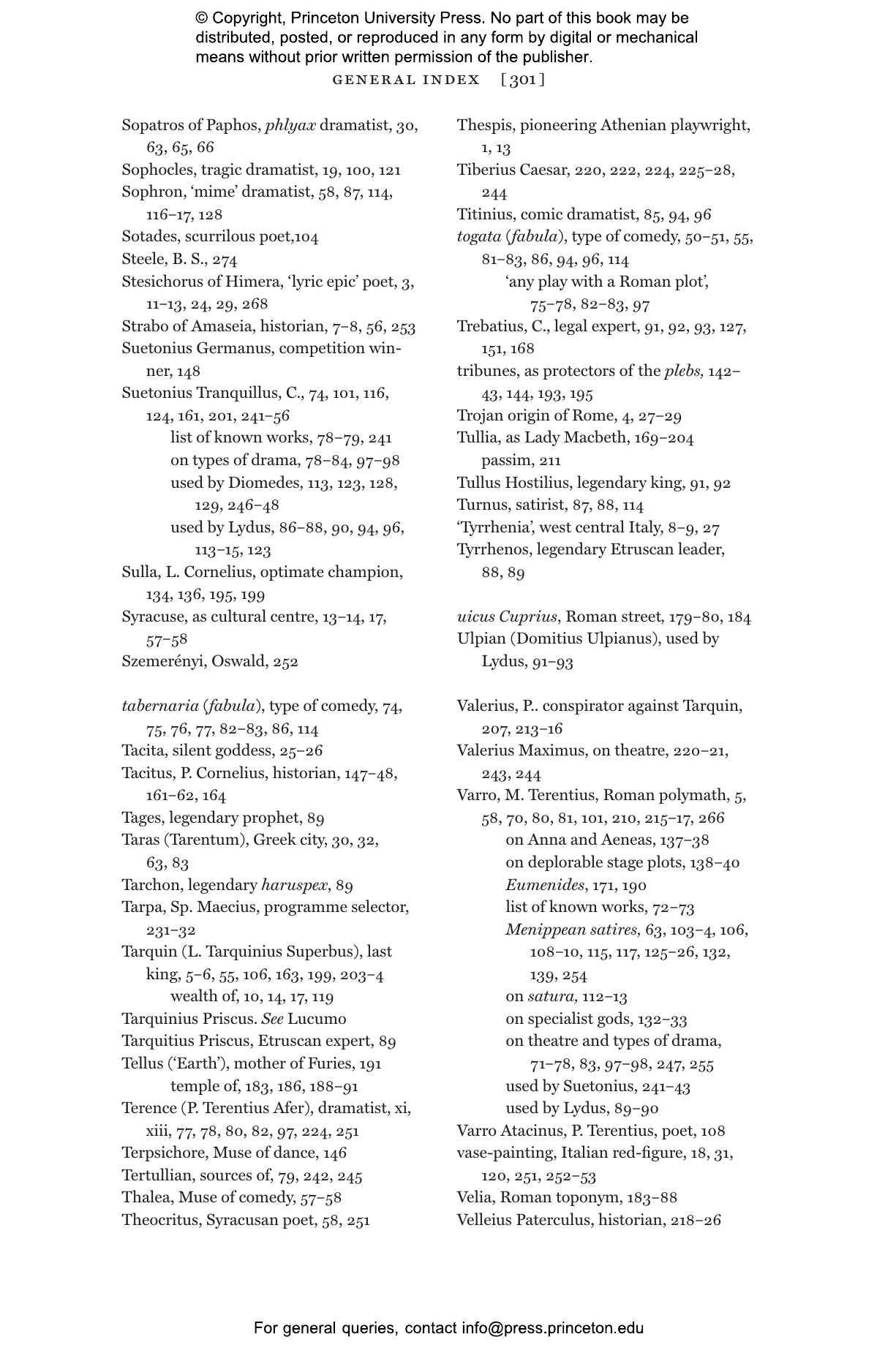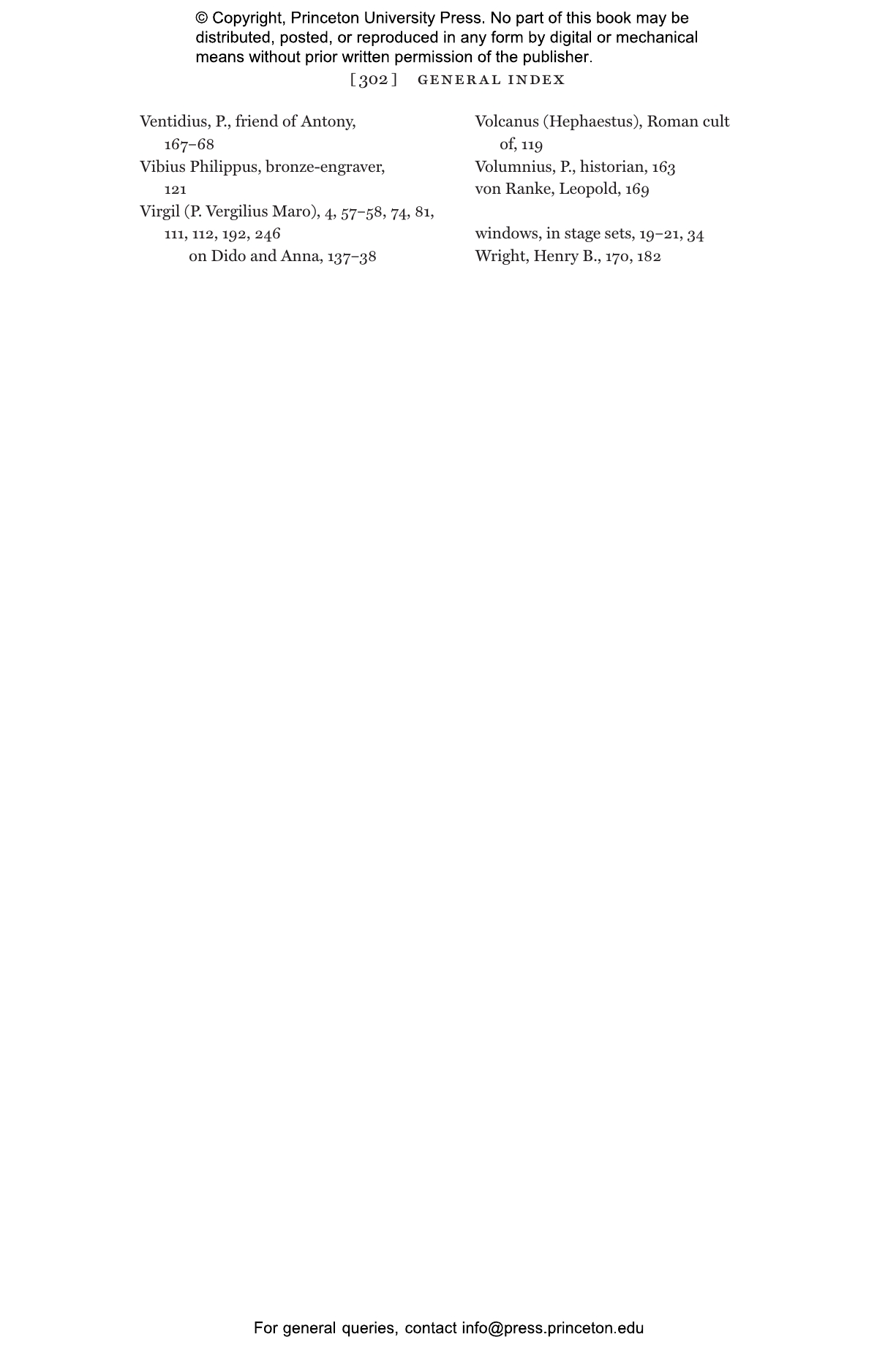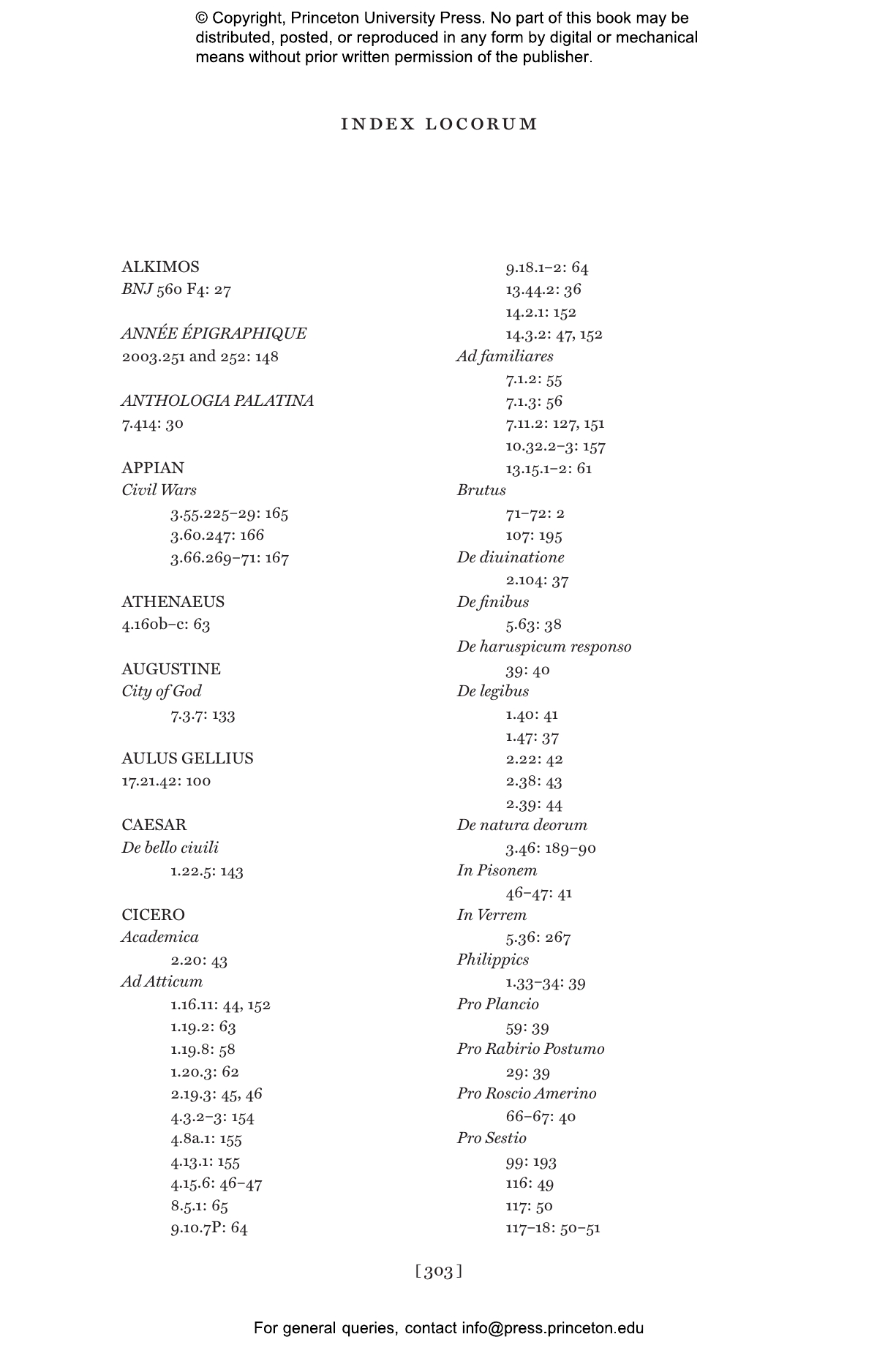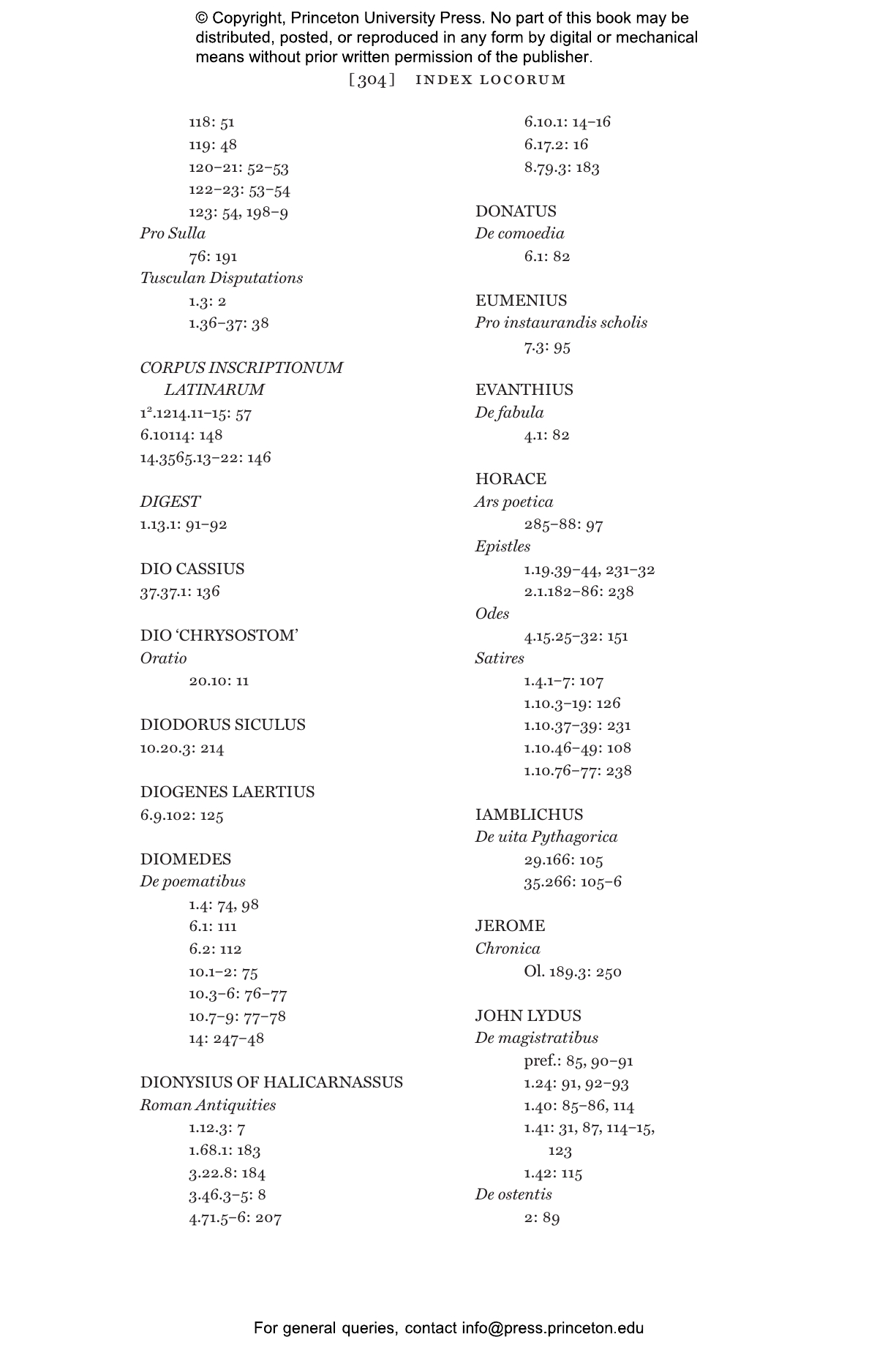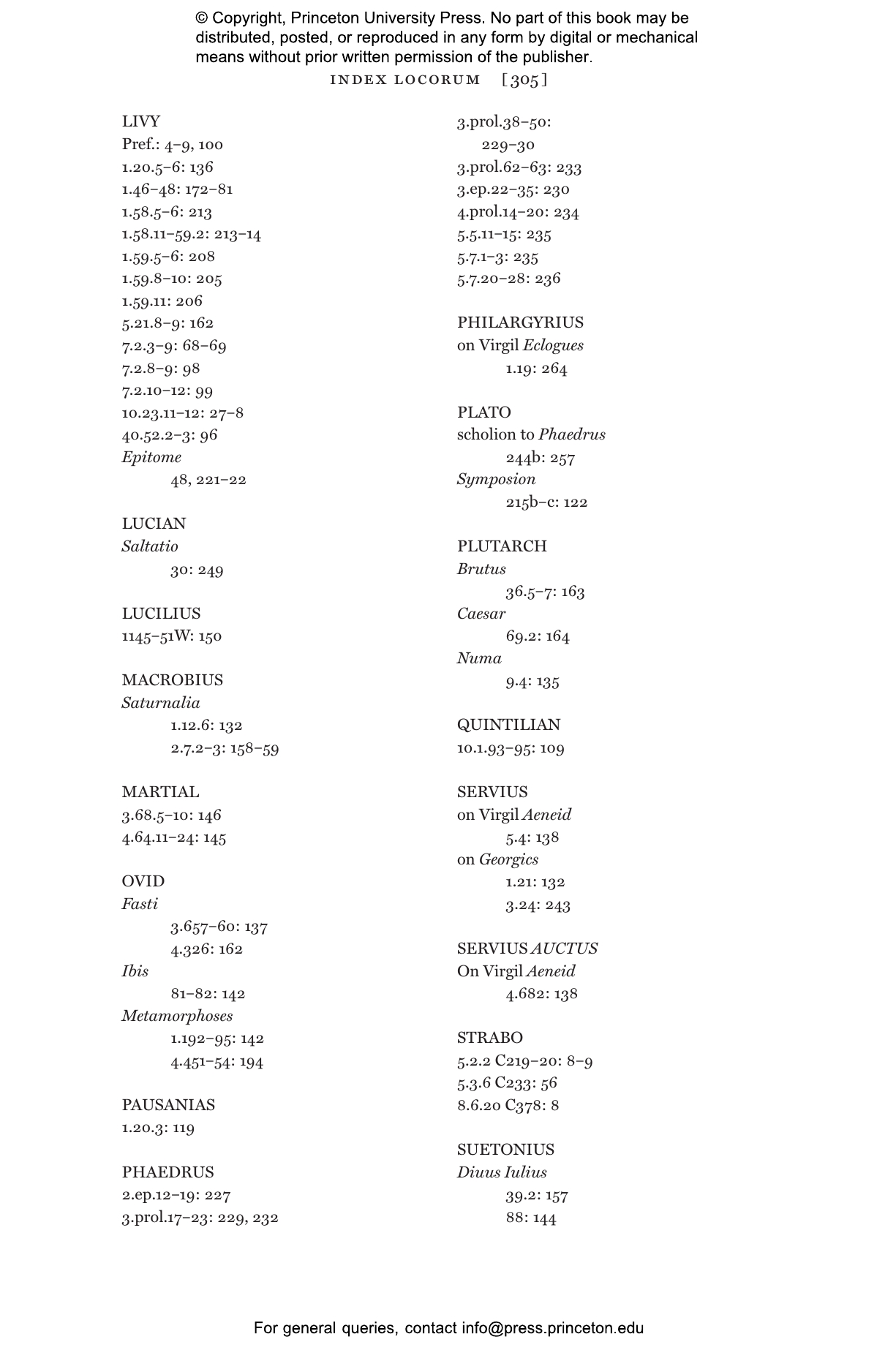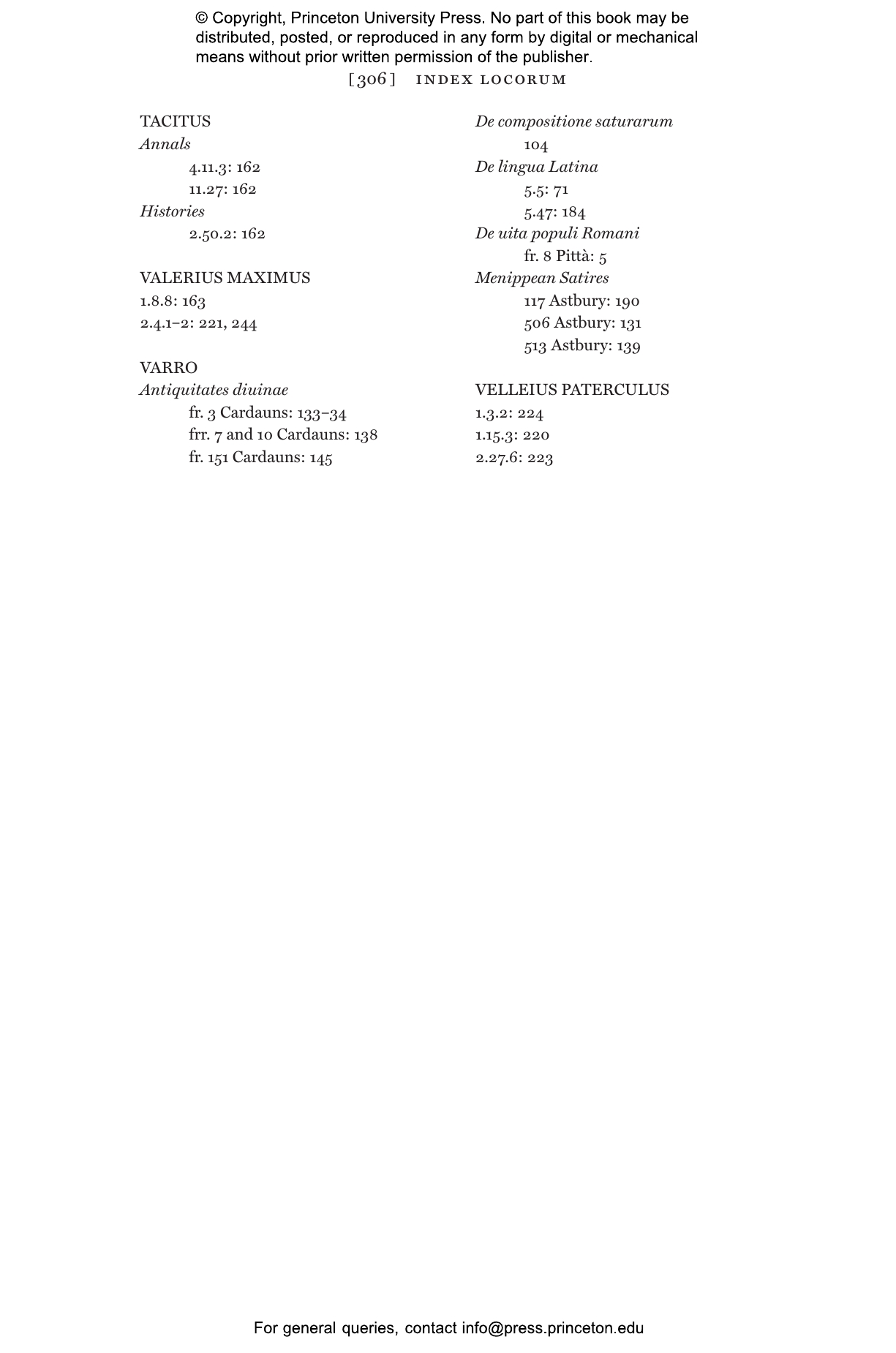Theatre was an integral part of Roman civic, religious and political life for nearly a thousand years, but our understanding of it is skewed by the haphazard survival of usable evidence. The widely accepted date for the beginning of Roman drama is 240 BC, but that is only the date of the first known dramatic works. Theatre as a public spectacle was created in Athens and in Greek Sicily at the end of the sixth century BC, when the culture of Rome, to judge by the archaeological evidence, was itself thoroughly Greek. There is therefore no need to imagine that the Romans knew nothing of drama until centuries after its inception. In The Lost History of Roman Theatre, the distinguished classics scholar T. P. Wiseman reexamines the often-obscured origins of Roman theatre.
In a series of detailed investigations, Wiseman explores material ignored or inadequately treated in the modern literature, including previously overlooked information in Cicero’s letters, speeches and dialogues about what theatre meant to Romans of his era. He further shows that the various styles of drama presented on the Roman stage were listed by grammarians in late antiquity who were using well-informed histories of drama now lost, and brings to light a wide range of evidence, visual as well as textual, from all that thousand-year stretch of time, to offer a new sense of the range and richness of the Romans’ experience of theatre.
Peter Wiseman has been professor of classics and ancient history at the University of Exeter for nearly fifty years. He is the author of Catullus and His World, The Roman Audience, The House of Augustus (91ÌÒÉ«) and many other well-known works. In 2022 he was awarded the British Academy’s Kenyon Medal for classical studies.
34199
“Peter Wiseman has been writing brilliantly about Roman literary culture for over fifty years, and this latest book is no exception: his views on the history of Roman theatre are challenging and controversial, and this will be a landmark publication in the field.”—Christopher Pelling, University of Oxford
“In this book, Peter Wiseman blends meticulous scholarship with disciplined historical imagination to throw light on different aspects of the history of Roman theatre. The picture that emerges is convincing and illuminating.”—Armand D’Angour, author of How to Innovate: An Ancient Guide to Creative Thinking
“Peter Wiseman’s astonishing erudition in both history and archaeology rewrites the conventional ‘primitive’ history of early Rome through tracing the assimilation of the already mature culture of the Greeks. In addition to opening many fresh perspectives, Wiseman argues cogently that theatre had come to Rome a good century before the conventional date tied to the first plays put on in Latin in 240 BCE.”—Oliver Taplin, author of Pots & Plays: Interactions Between Tragedy and Greek Vase-painting of the Fourth Century B.C.
“Peter Wiseman’s book, drawing on a wealth of textual and material evidence, offers a characteristically learned and provocative reimagining of Roman theatrical traditions. This collection of studies will be essential reading for anyone interested in the place of theatre in Roman society.”—Catherine Edwards, author of Death in Ancient Rome
This publication has been produced to meet accepted Accessibility standards and contains various accessibility features including concise image descriptions, a table of contents, a page list to navigate to pages corresponding to the print source version, and elements such as headings for structured navigation. Appearance of the text and page layout can be modified according to the capabilities of the reading system.
Accessibility Features
-
WCAG v2.2
-
WCAG level AA
-
Table of contents navigation
-
Single logical reading order
-
Short alternative textual descriptions
-
Print-equivalent page numbering
-
Landmark navigation
-
Index navigation
-
Epub Accessibility Specification 1.1
-
ARIA roles provided
-
All non-decorative content supports reading without sight
-
No known hazards or warnings
